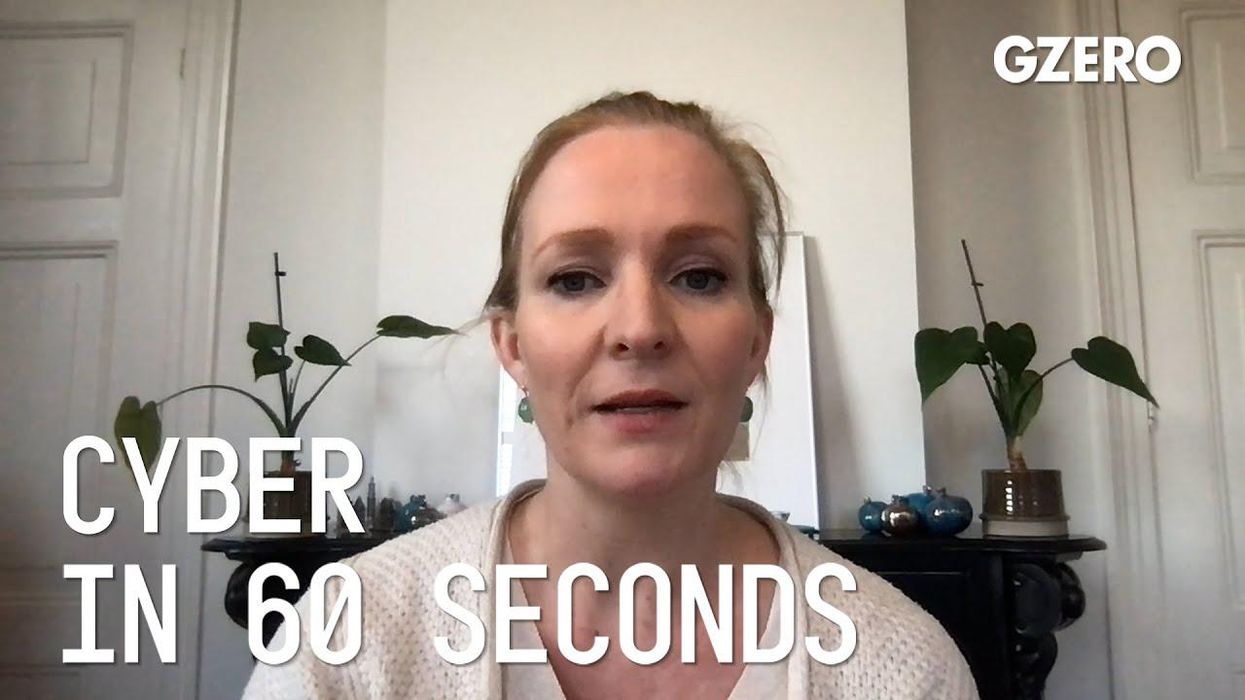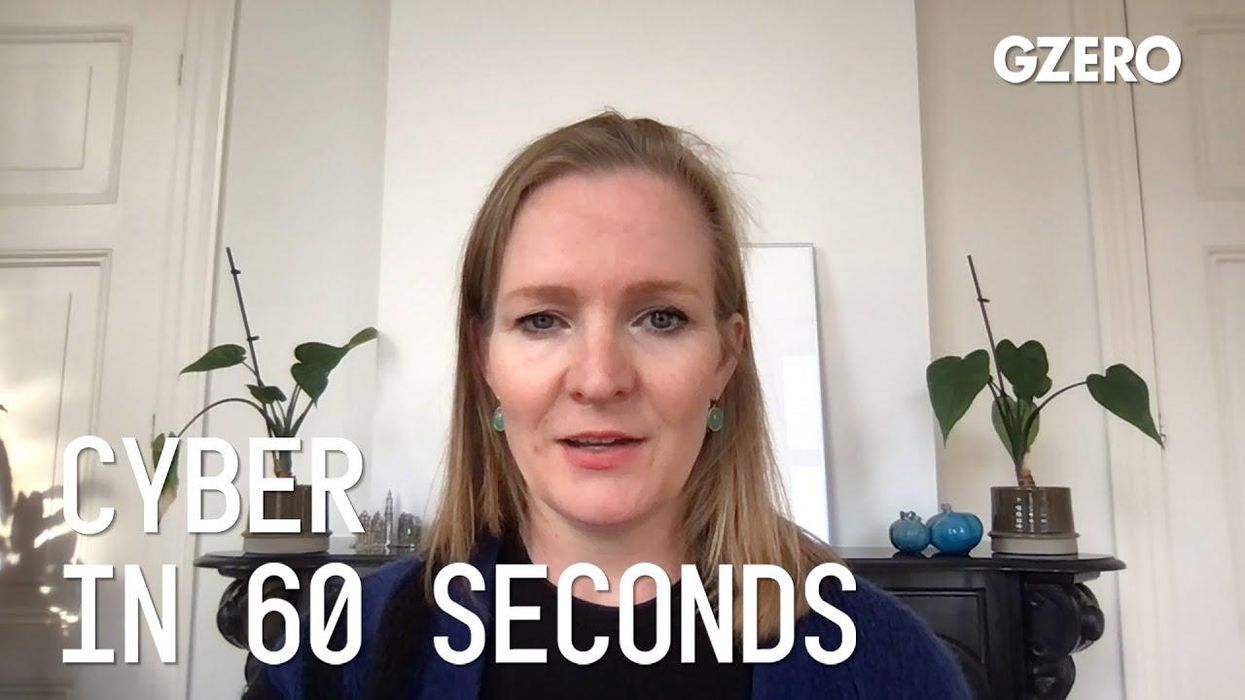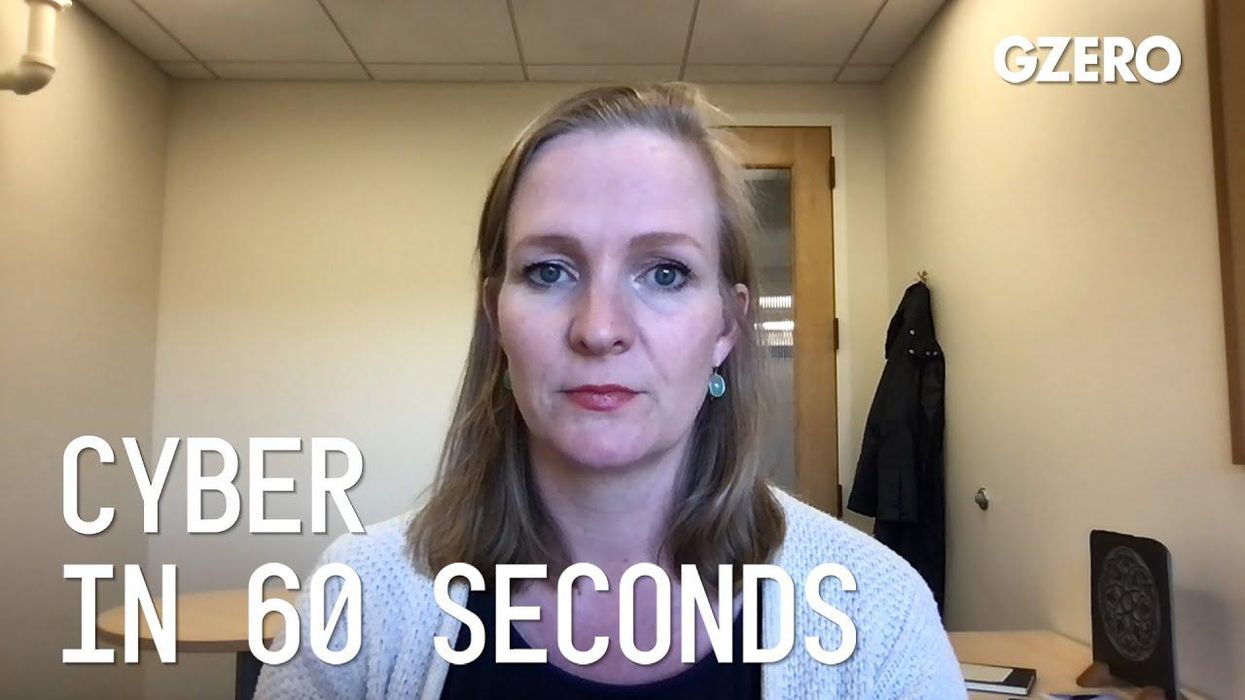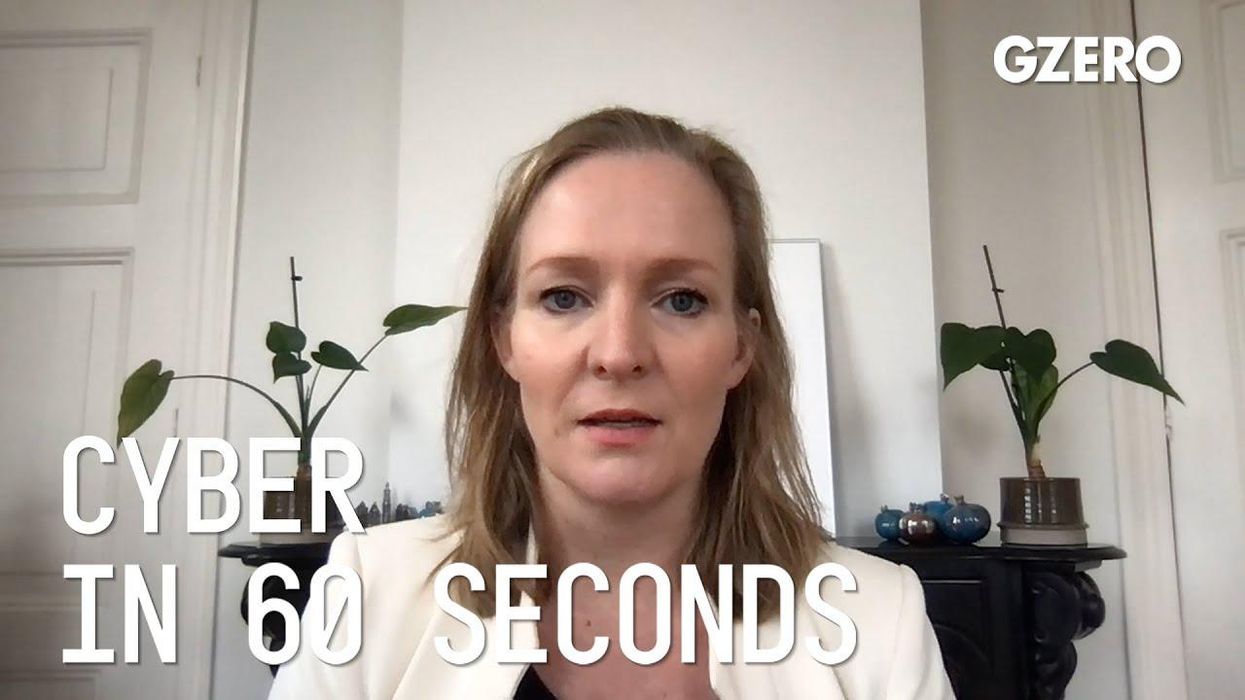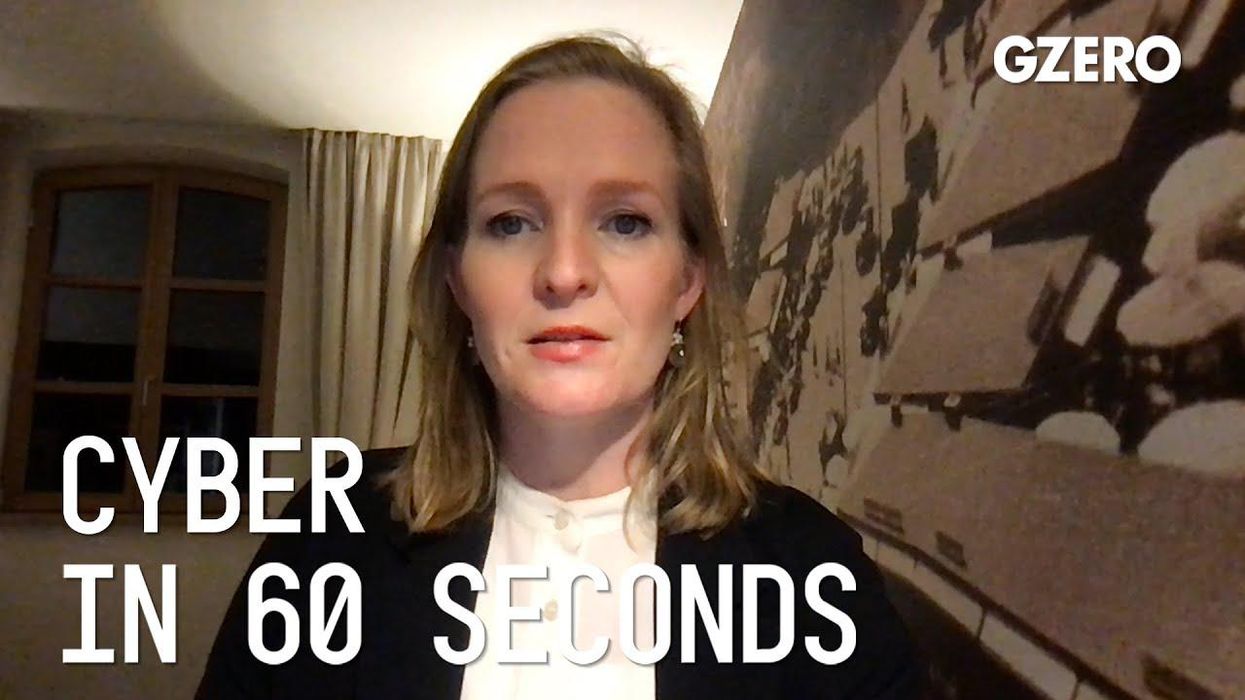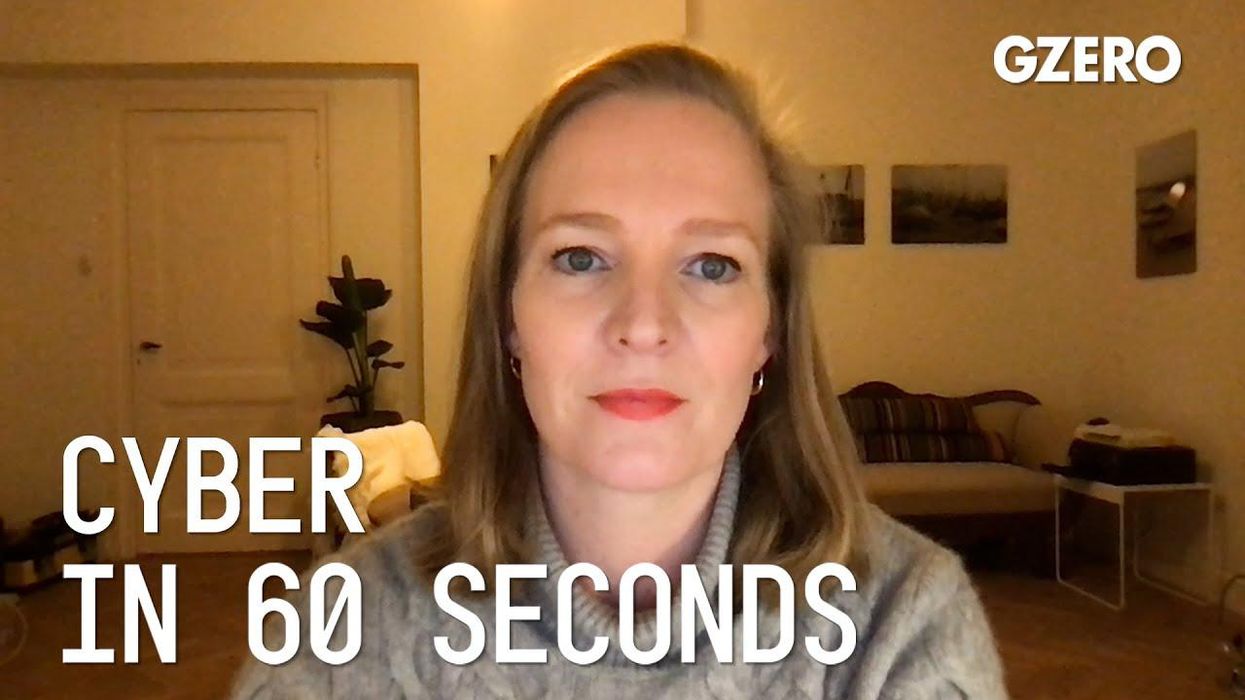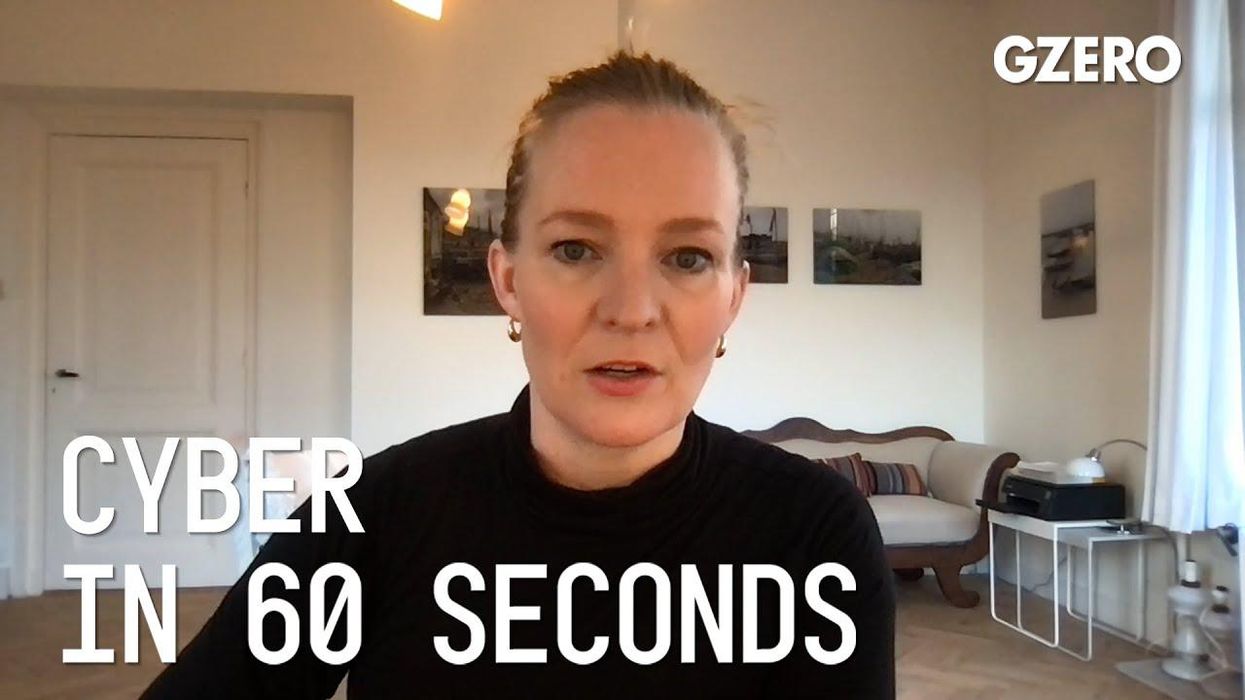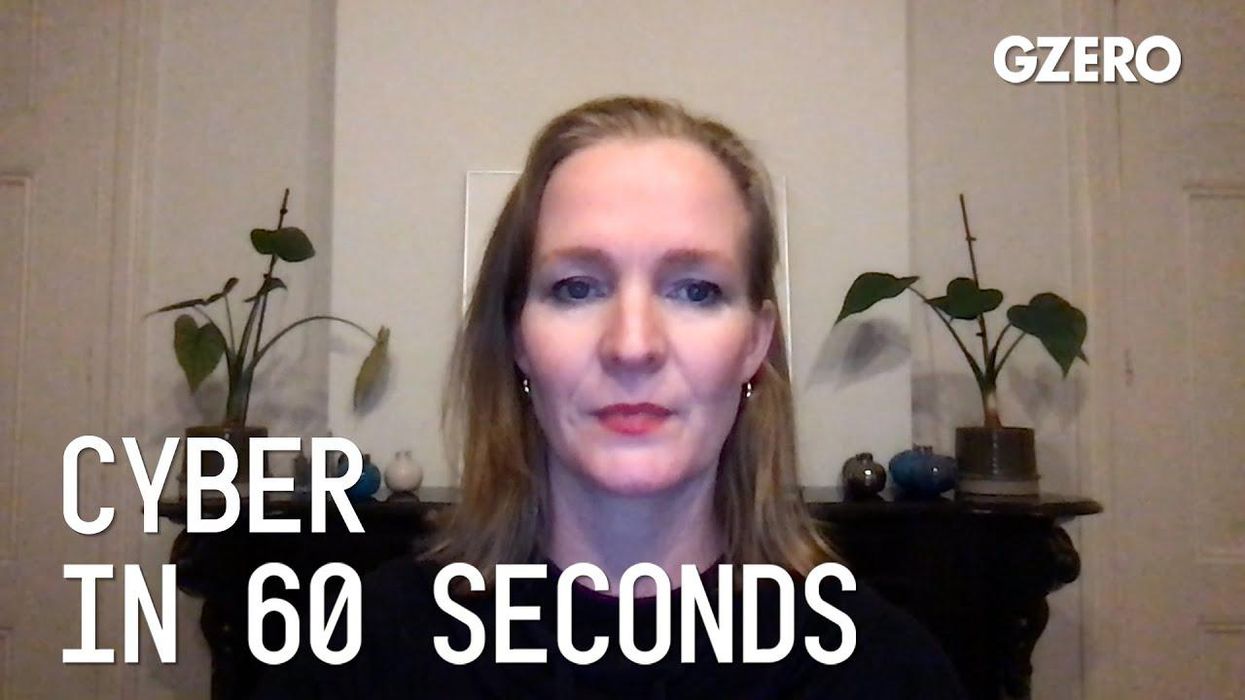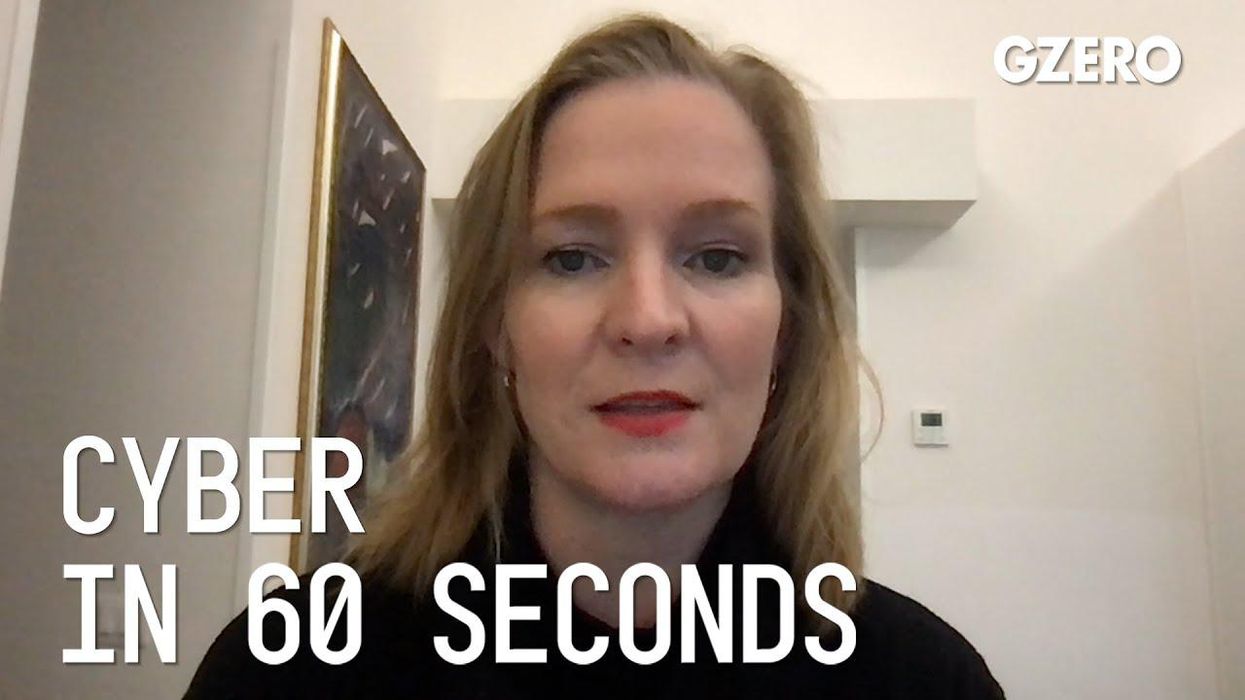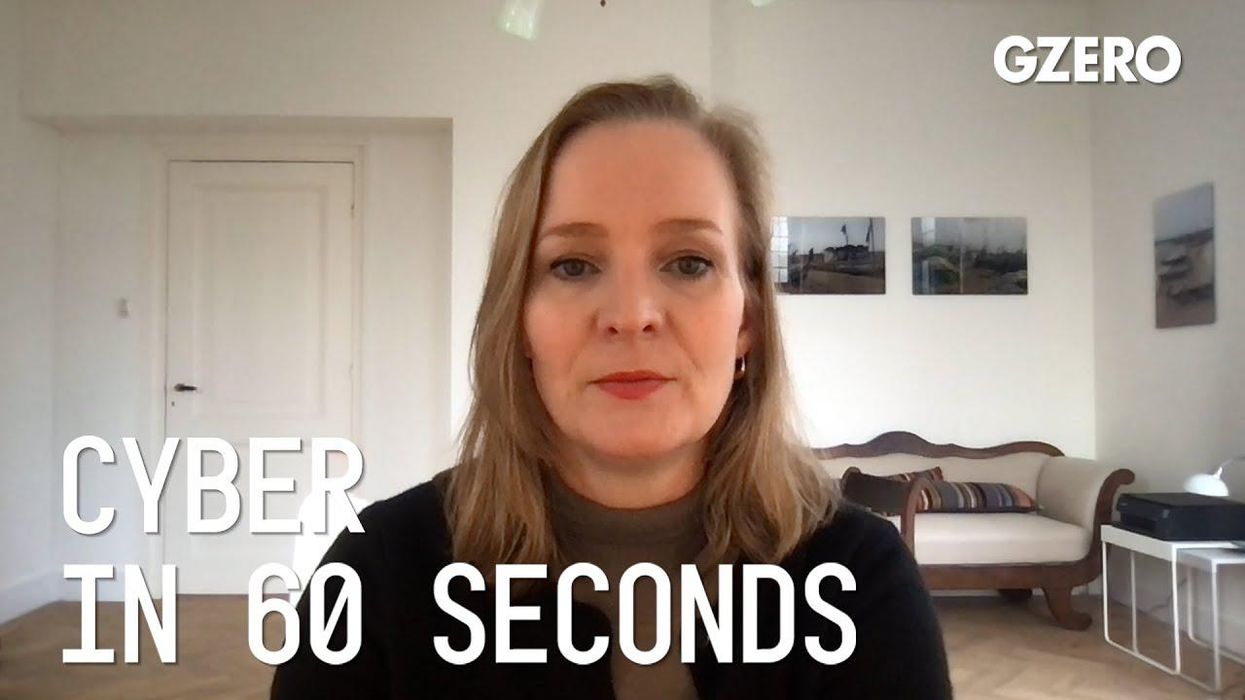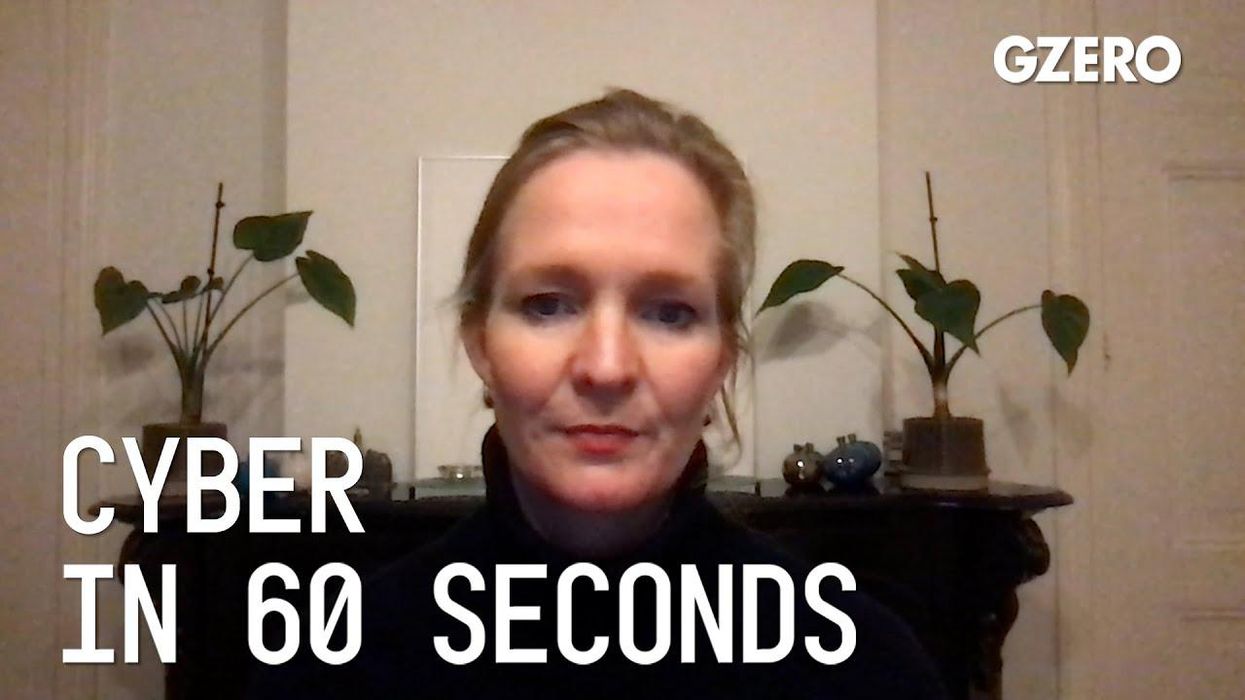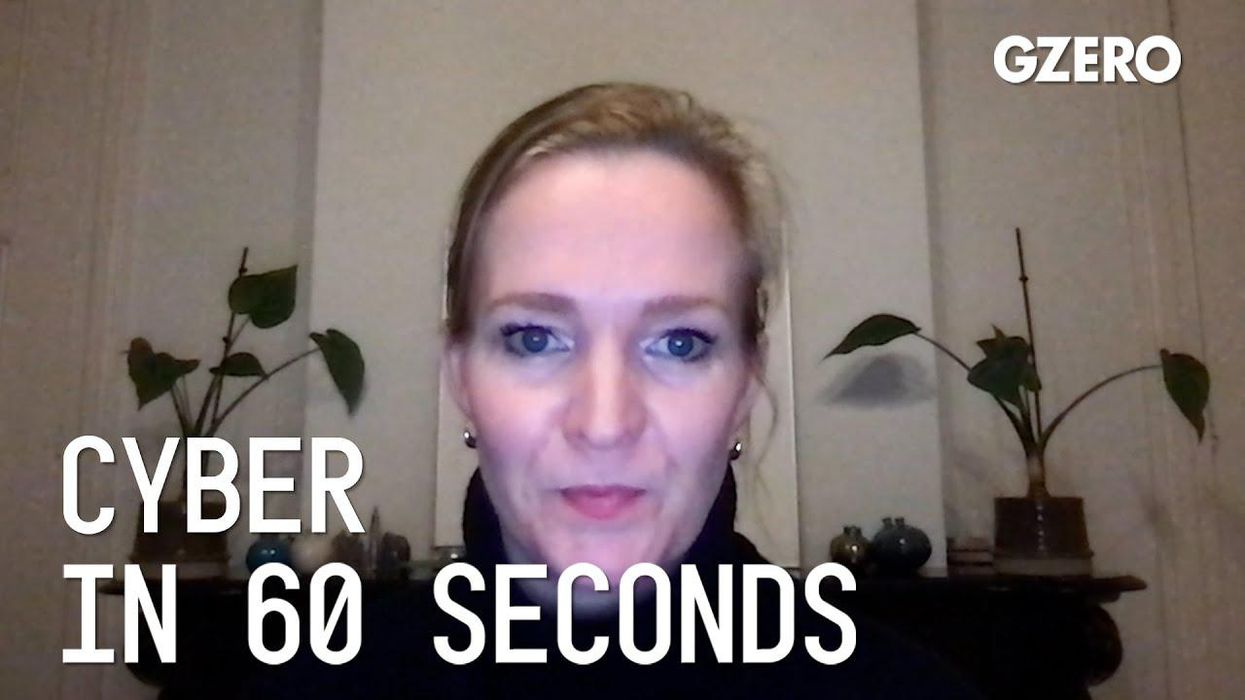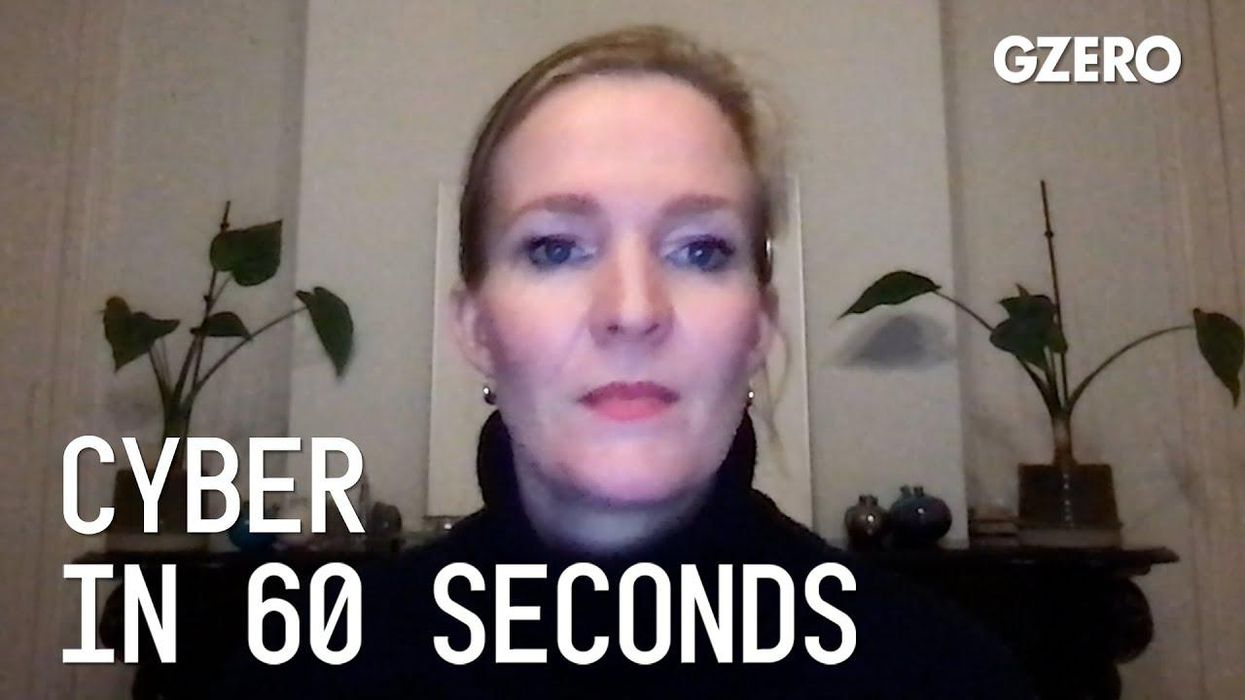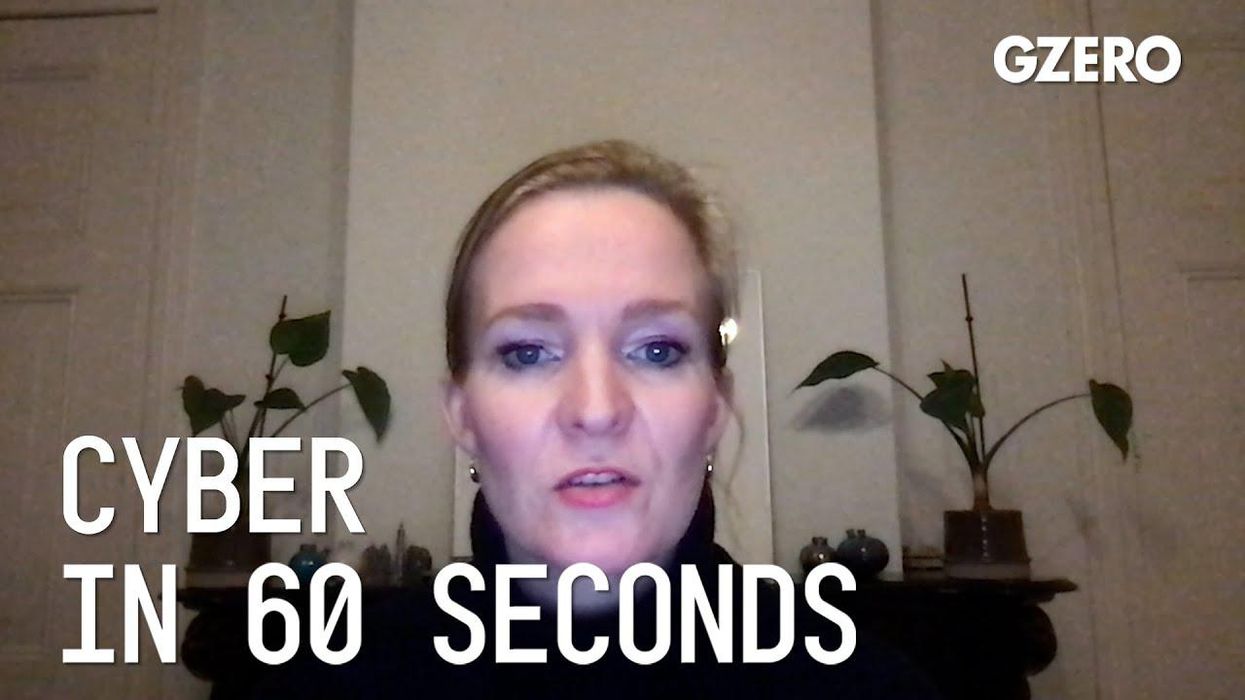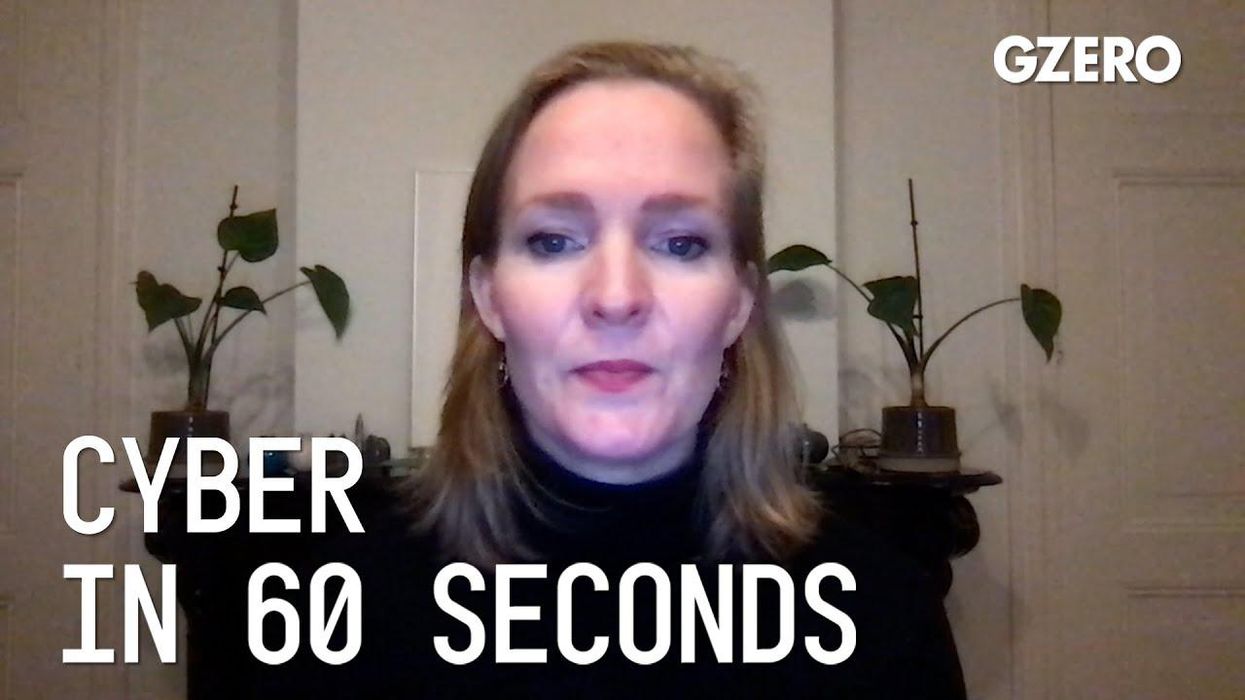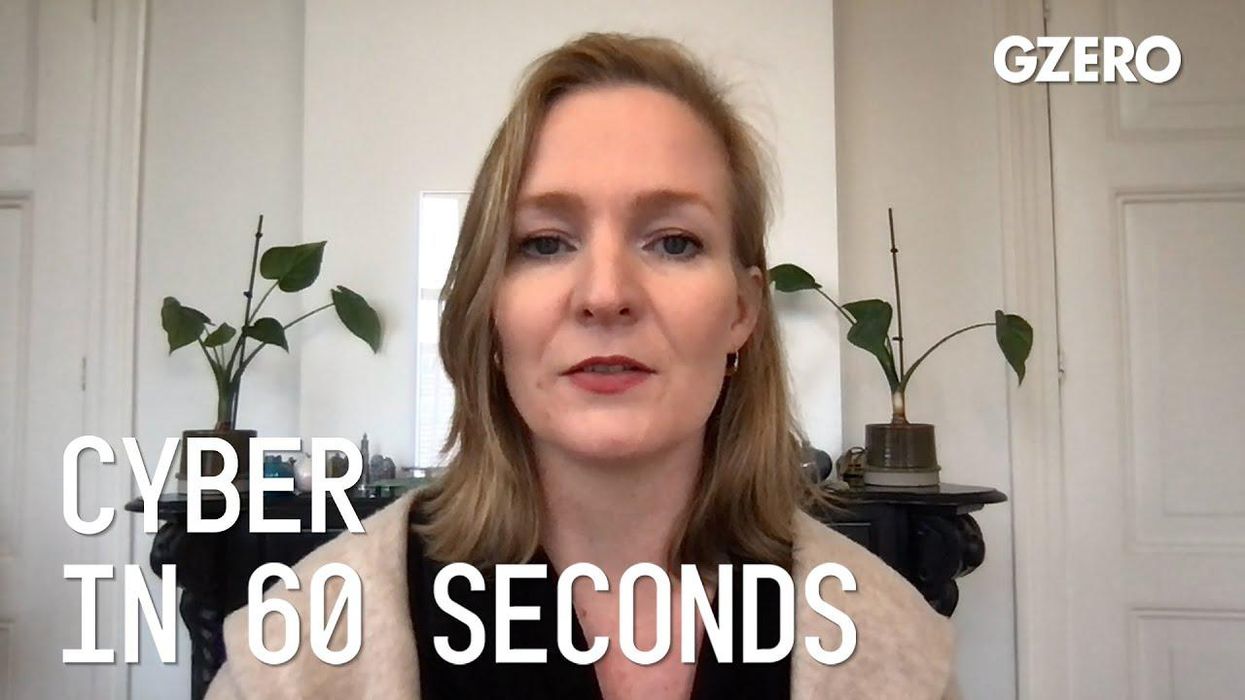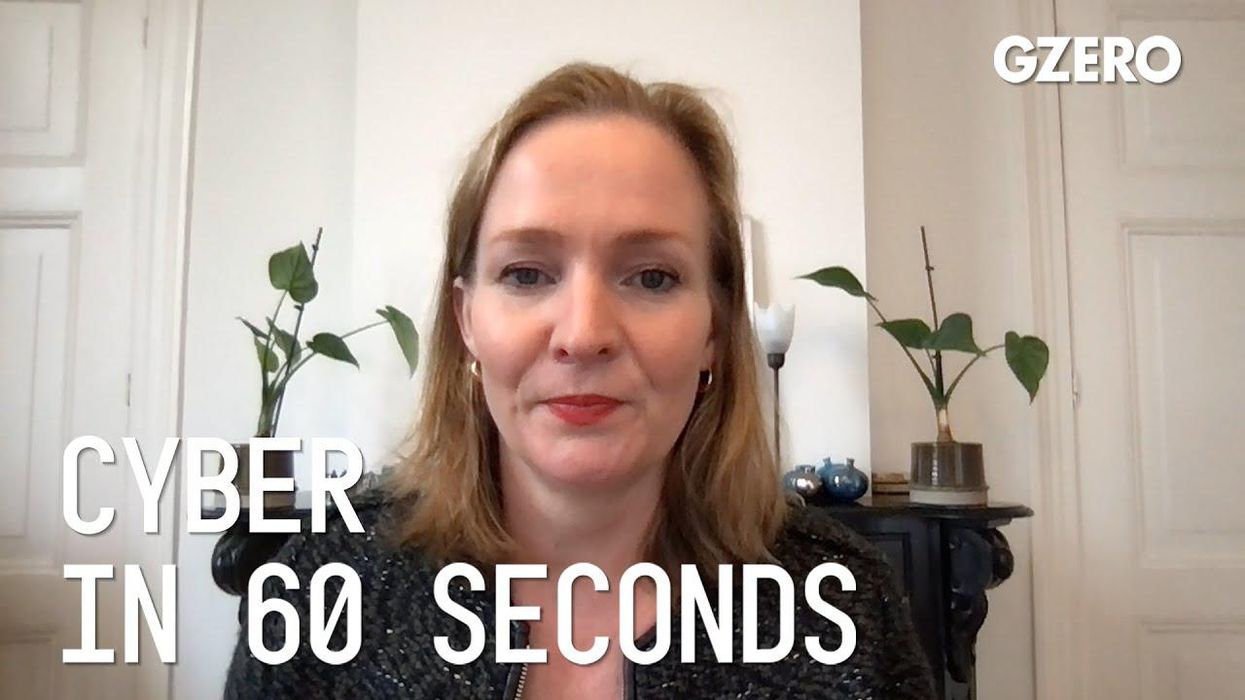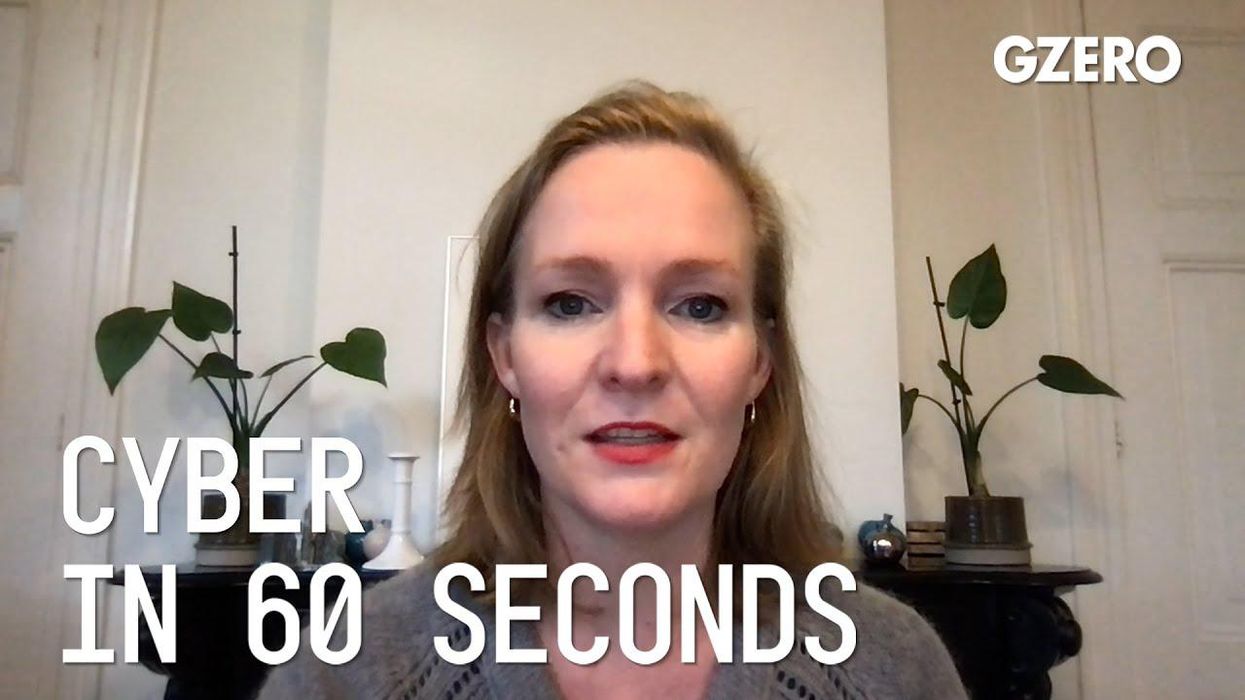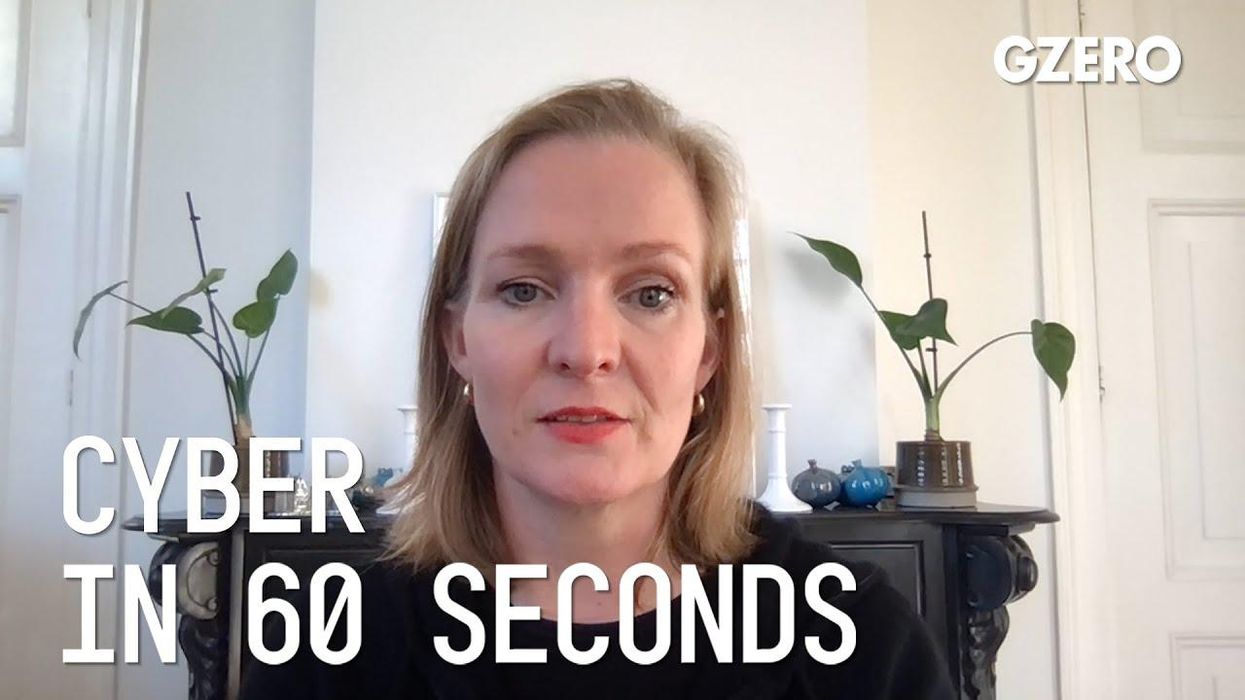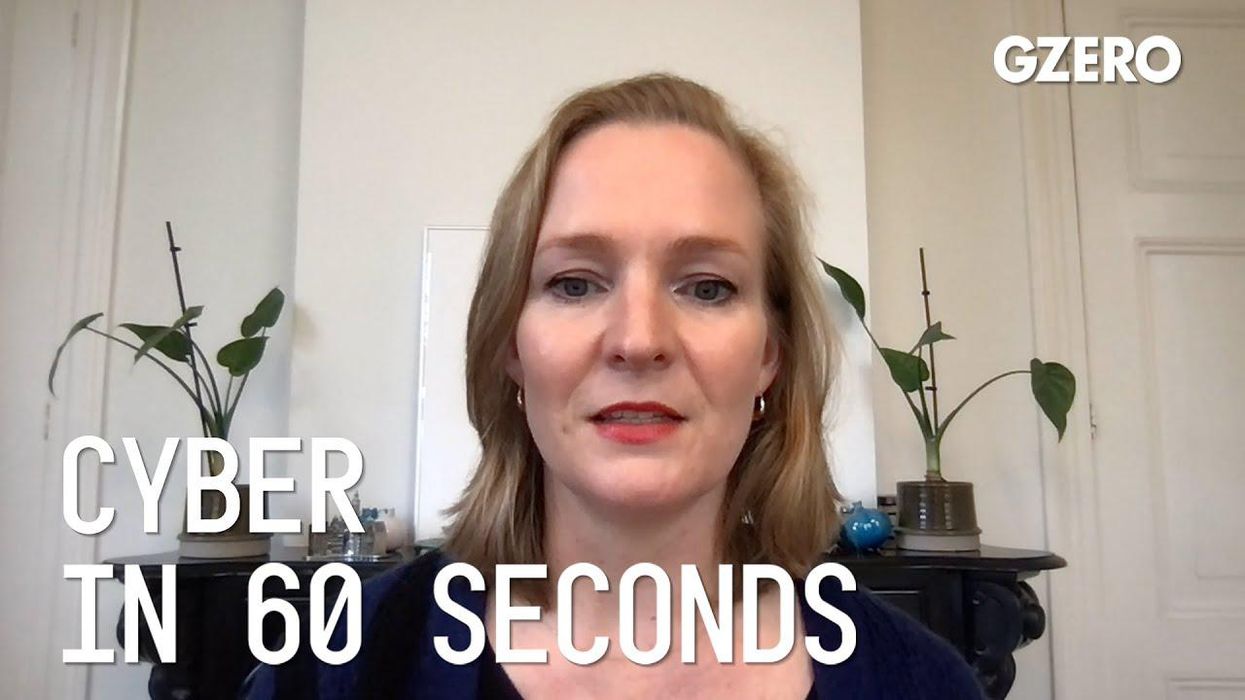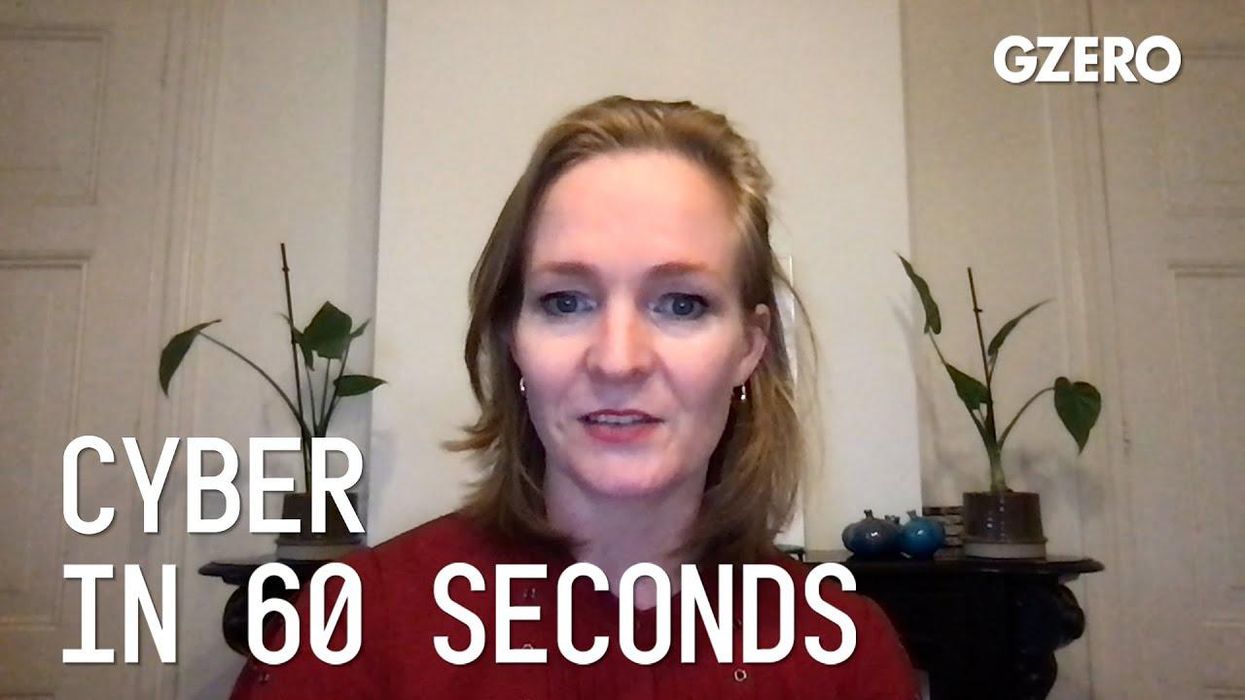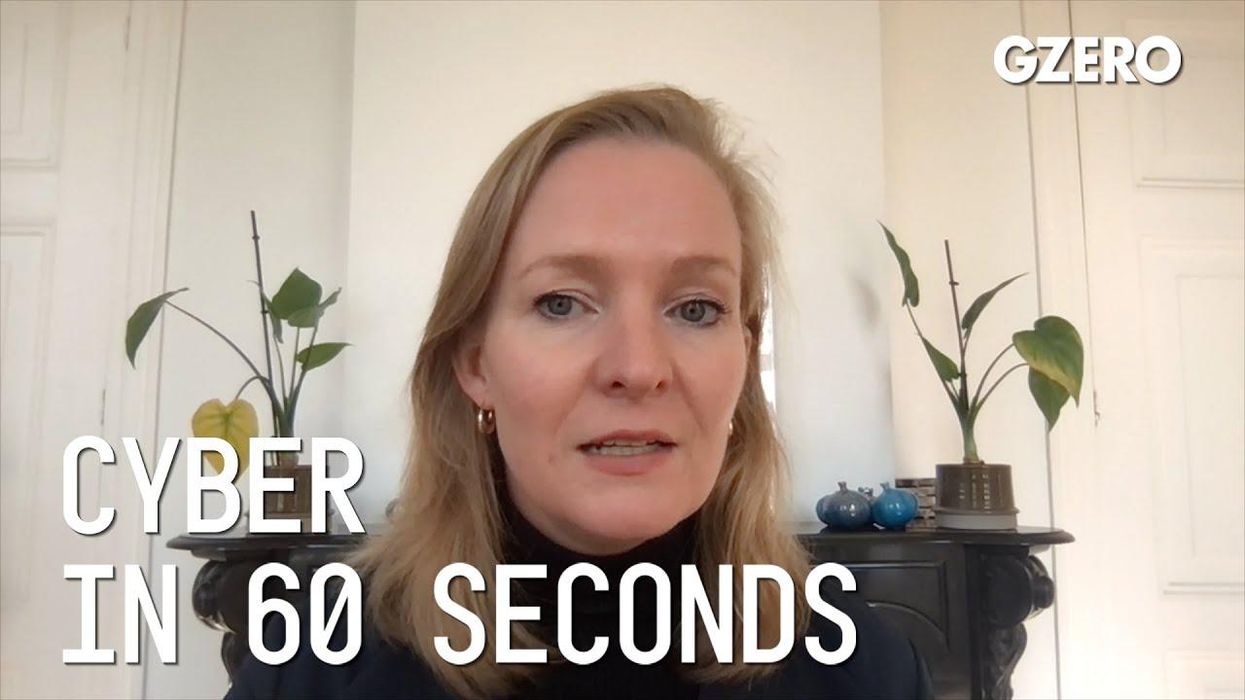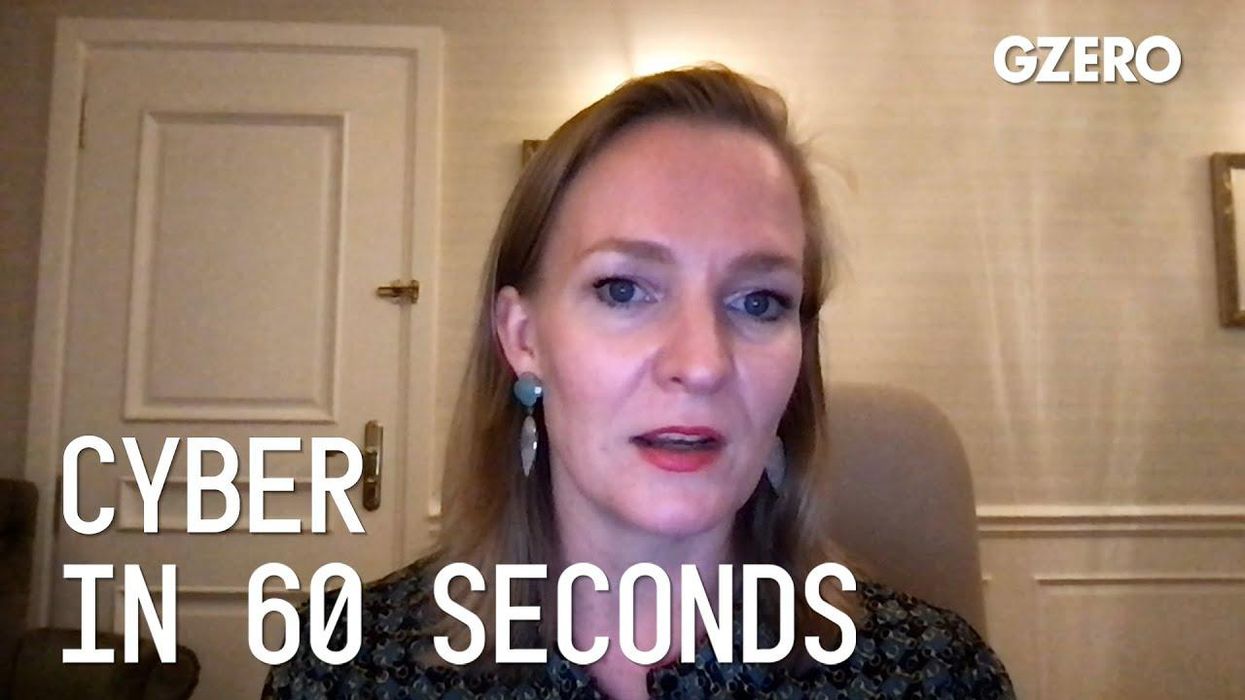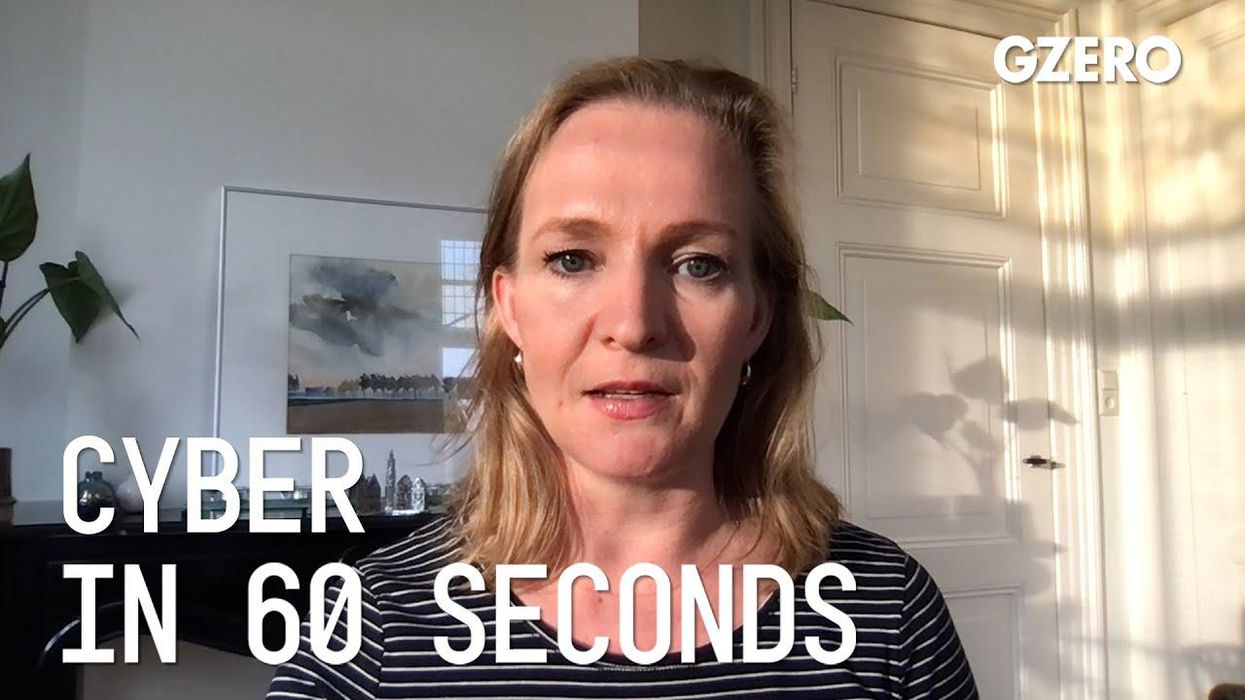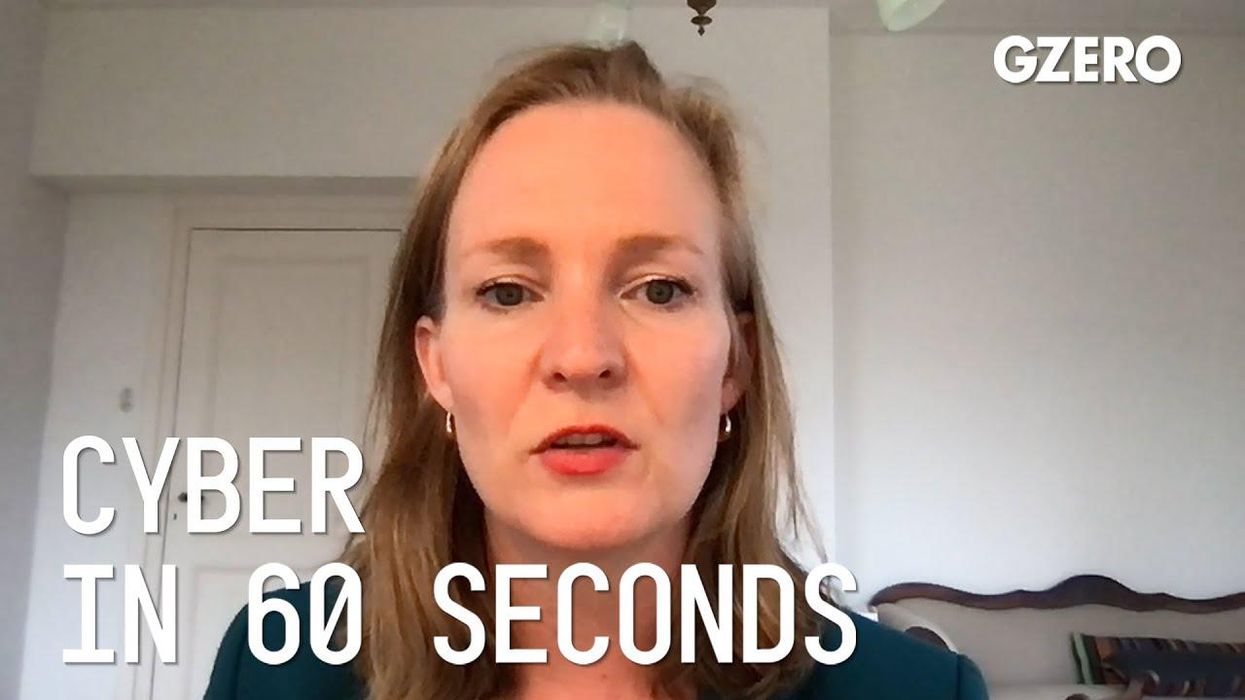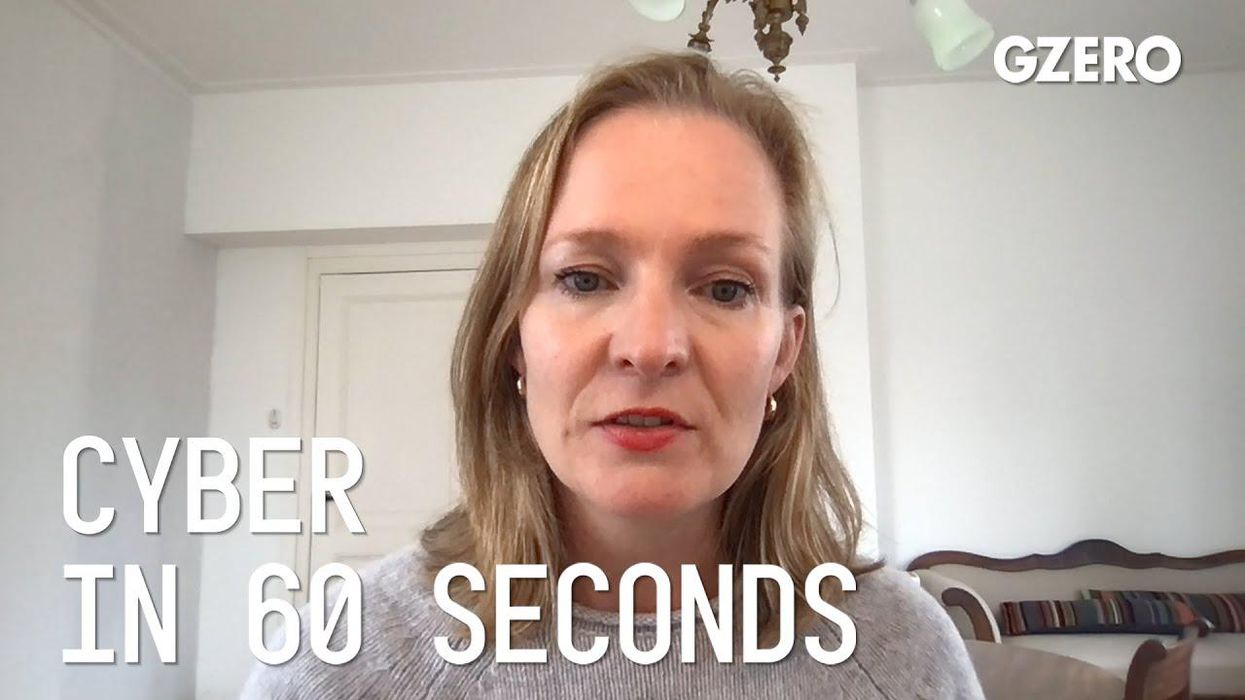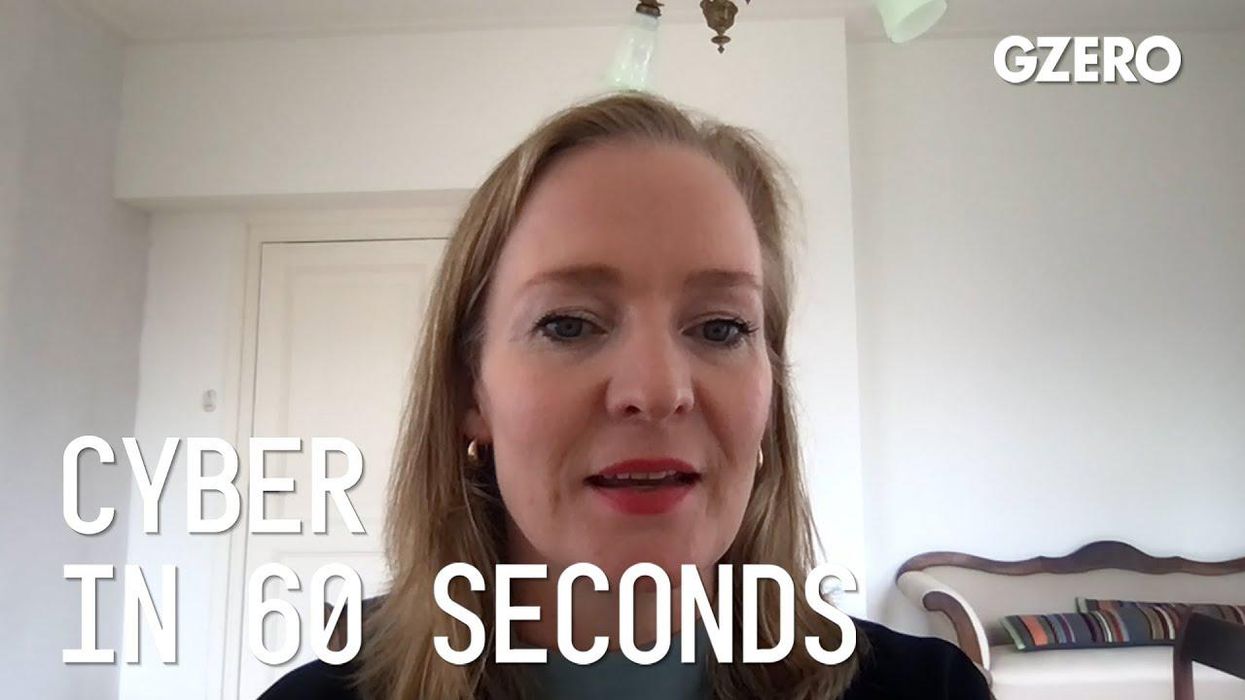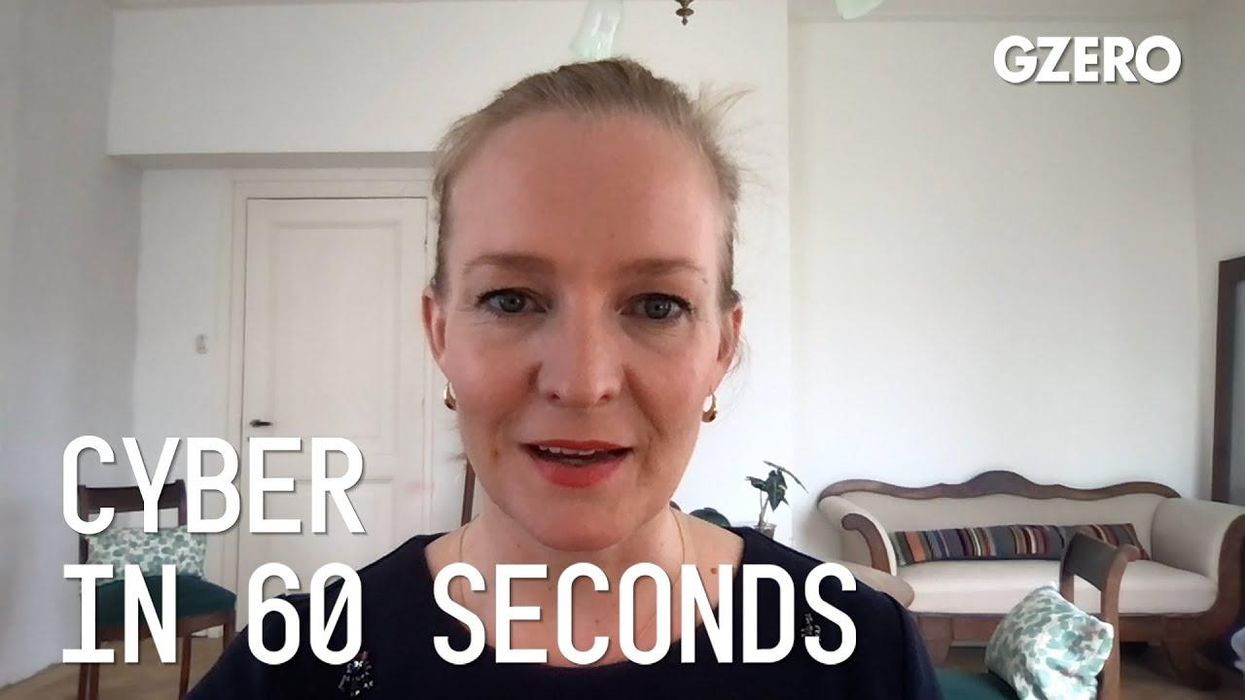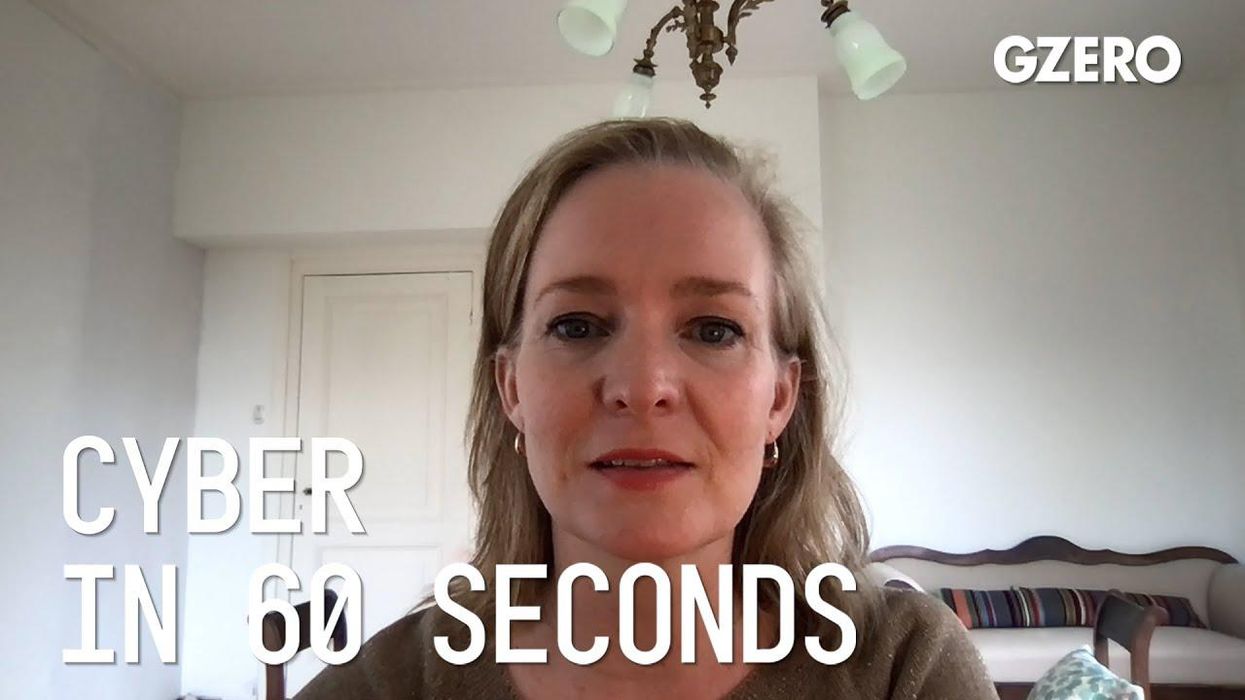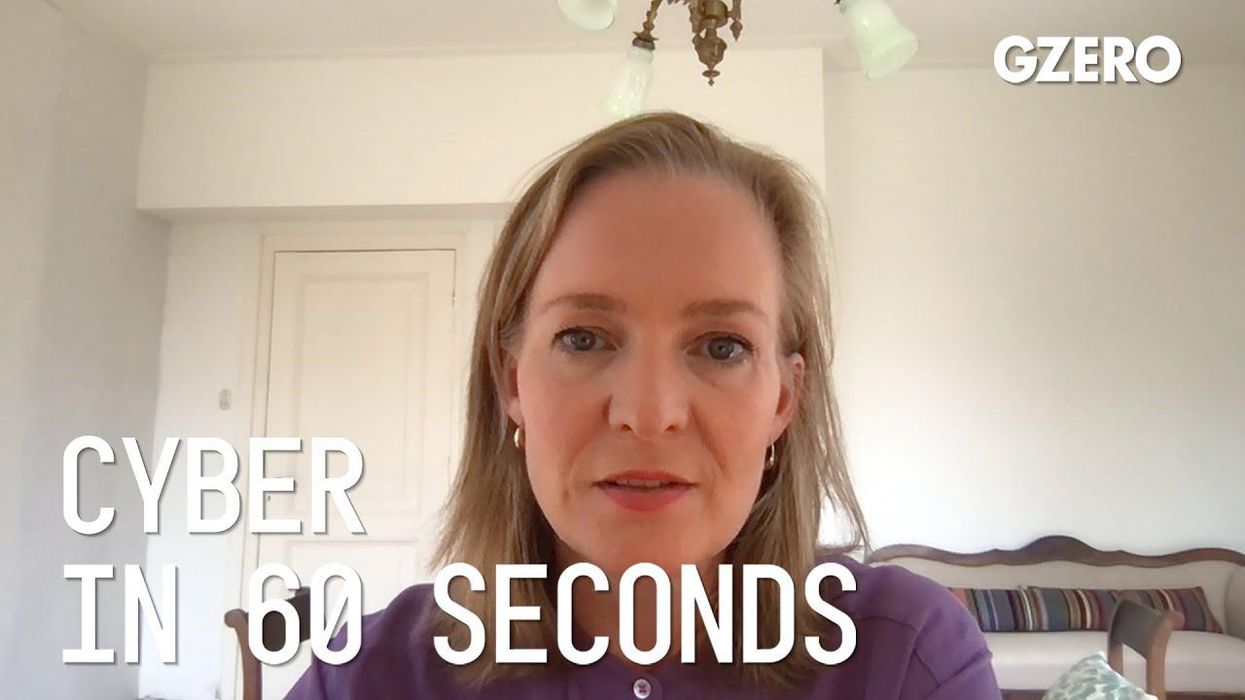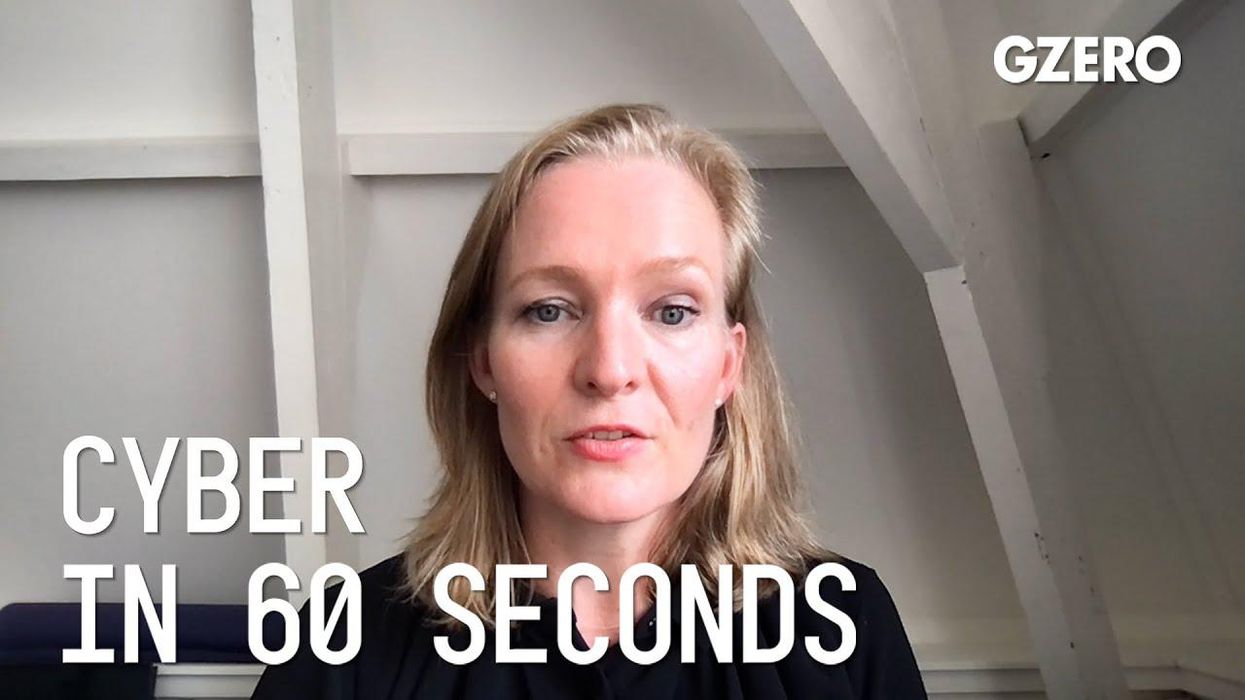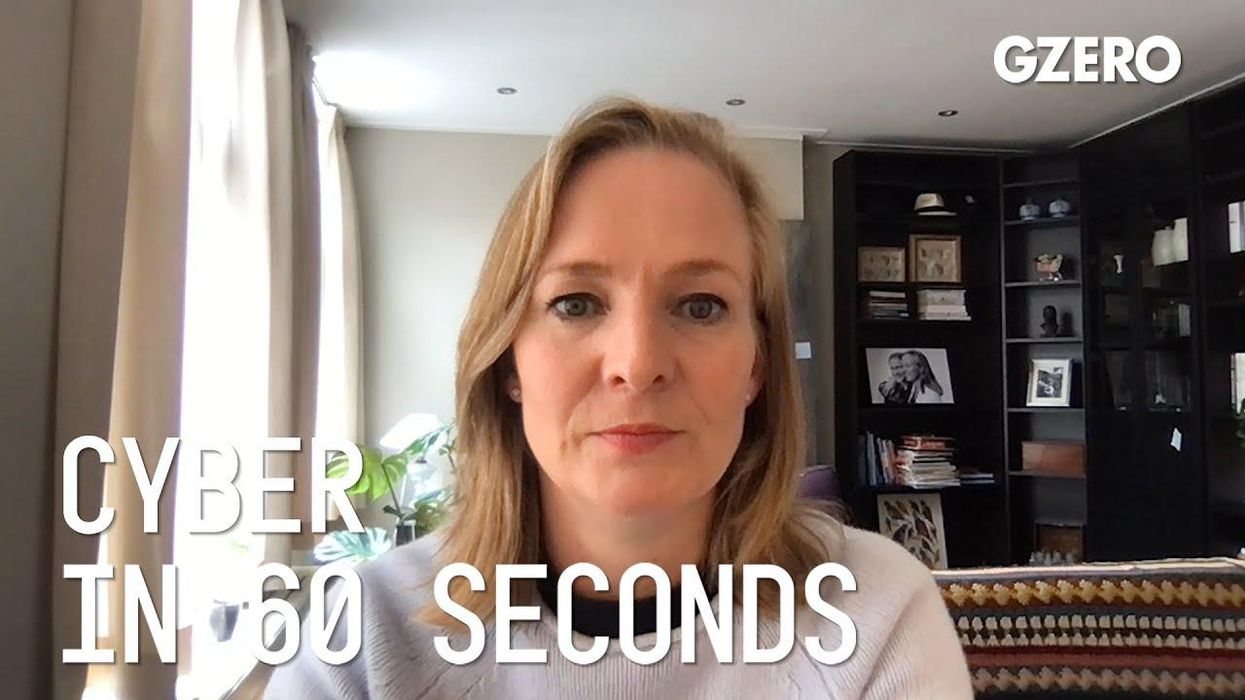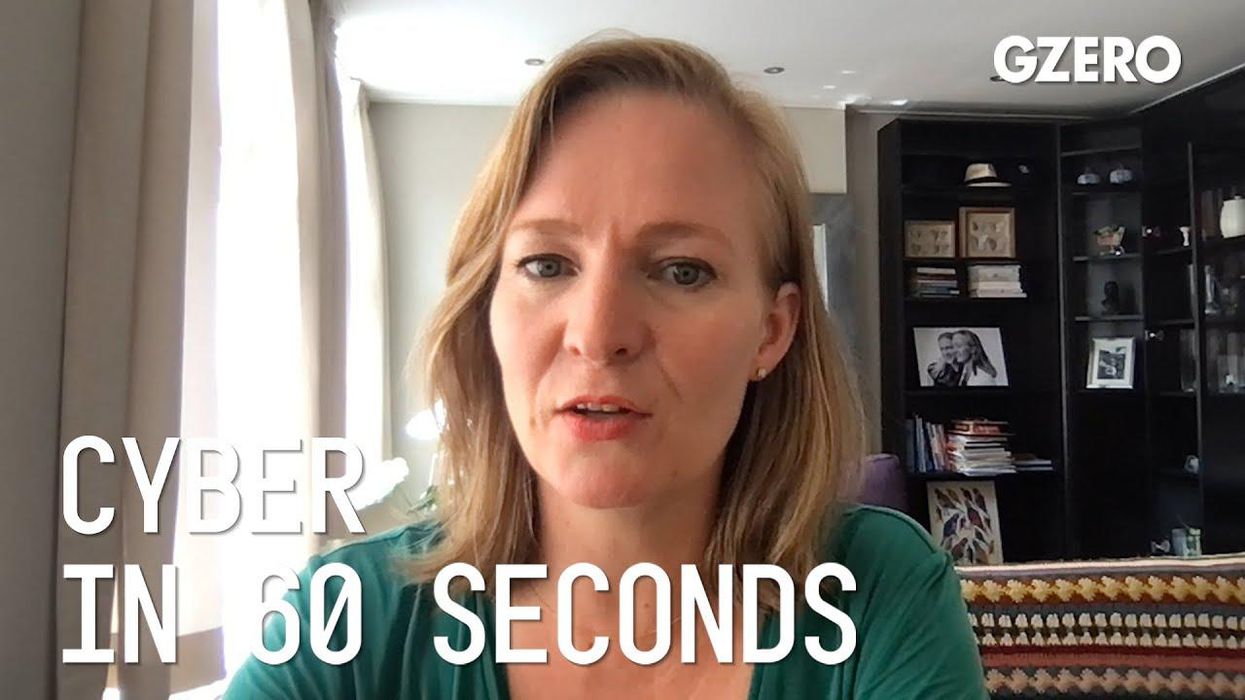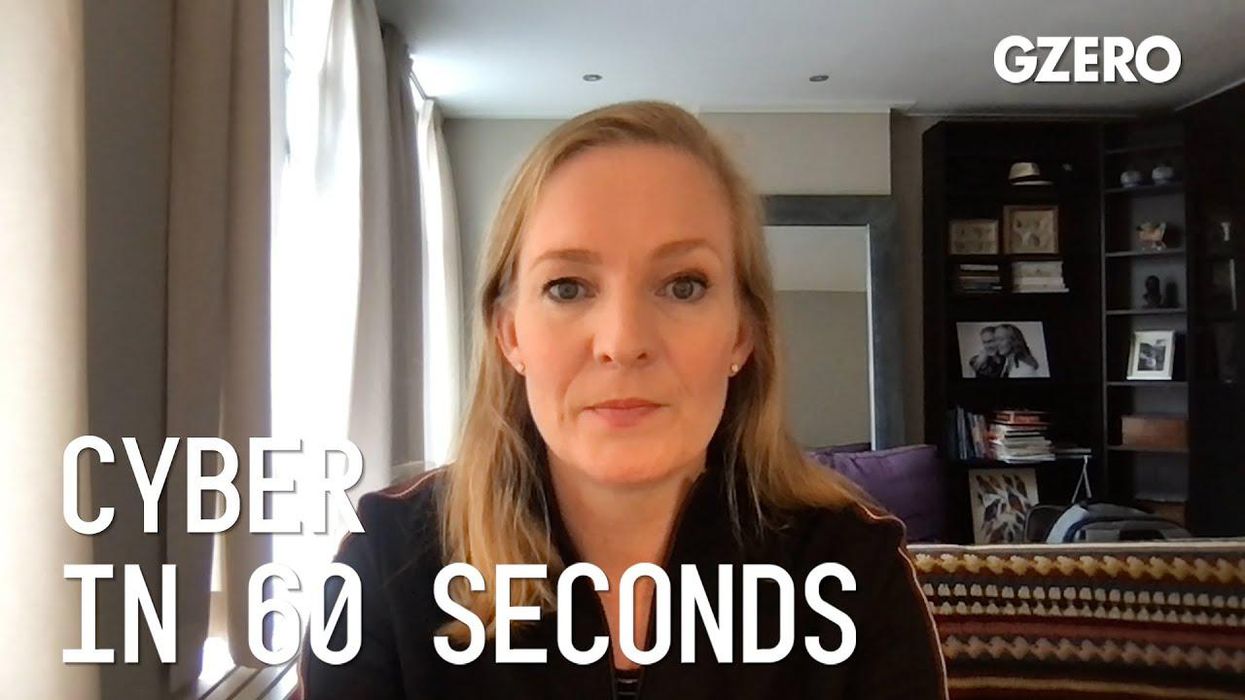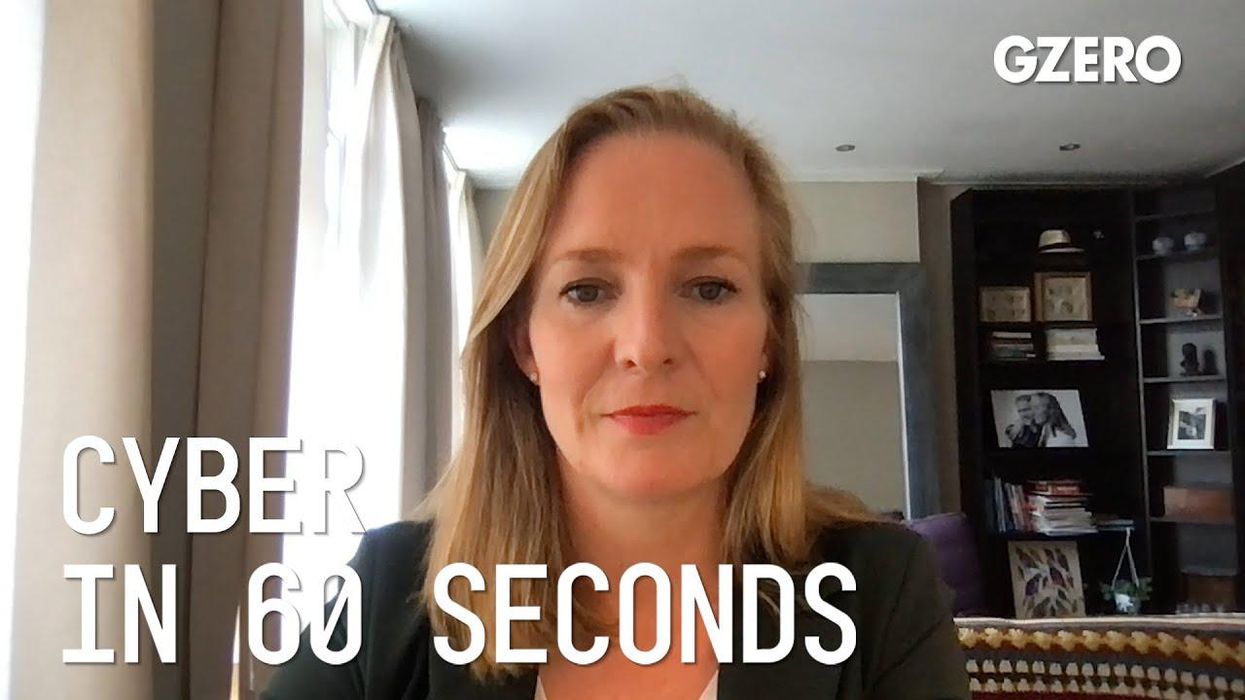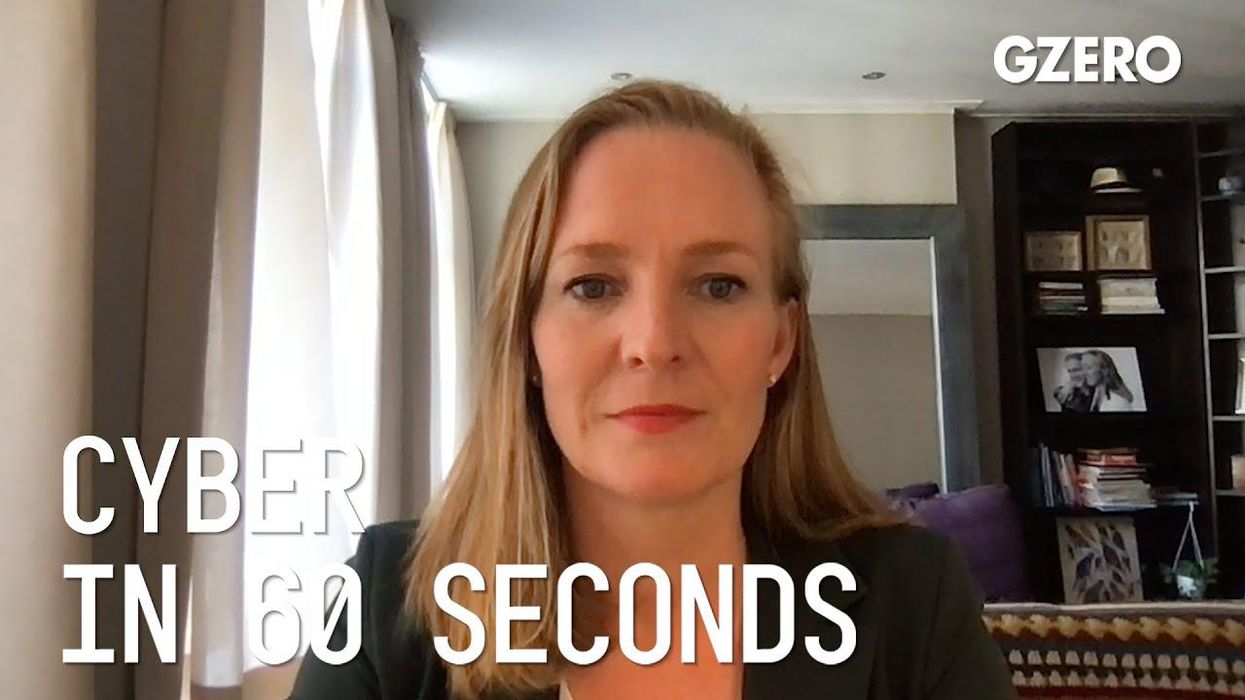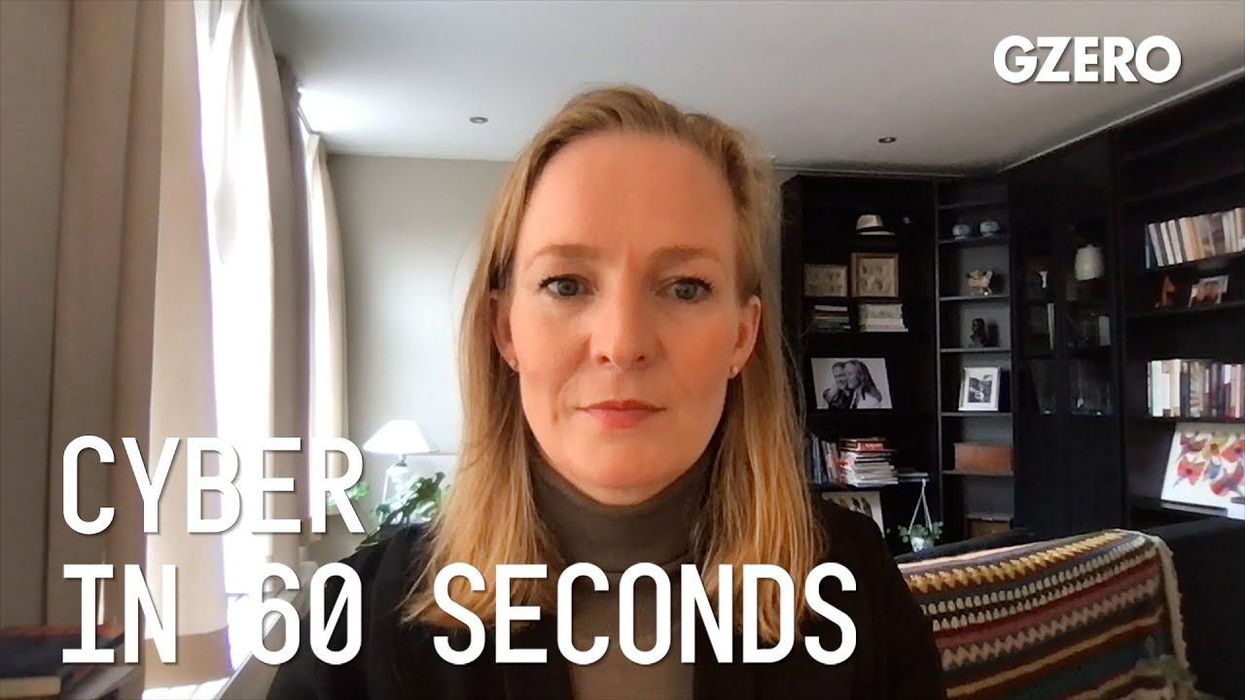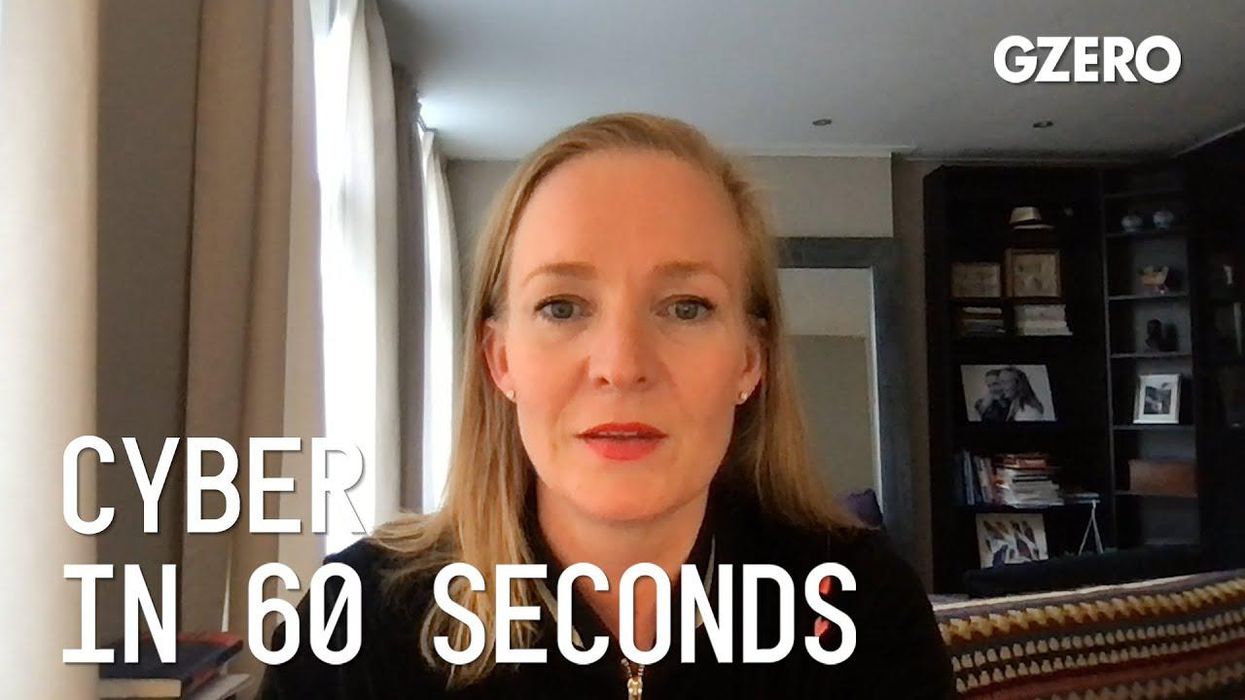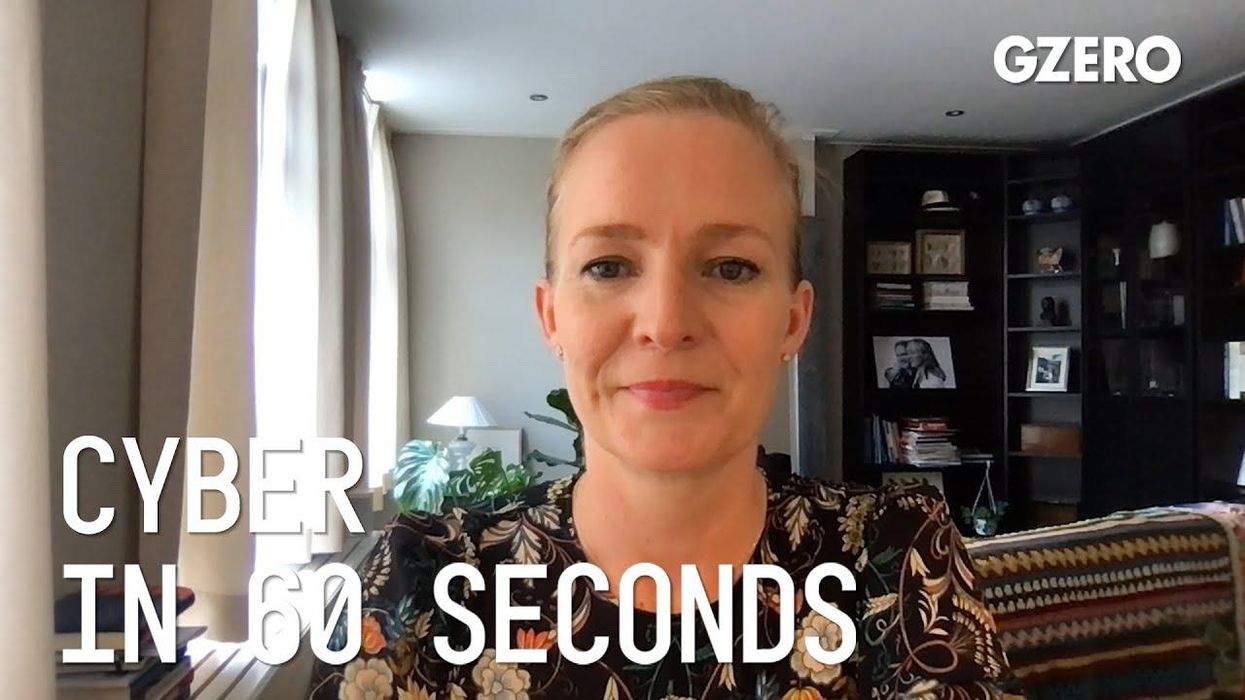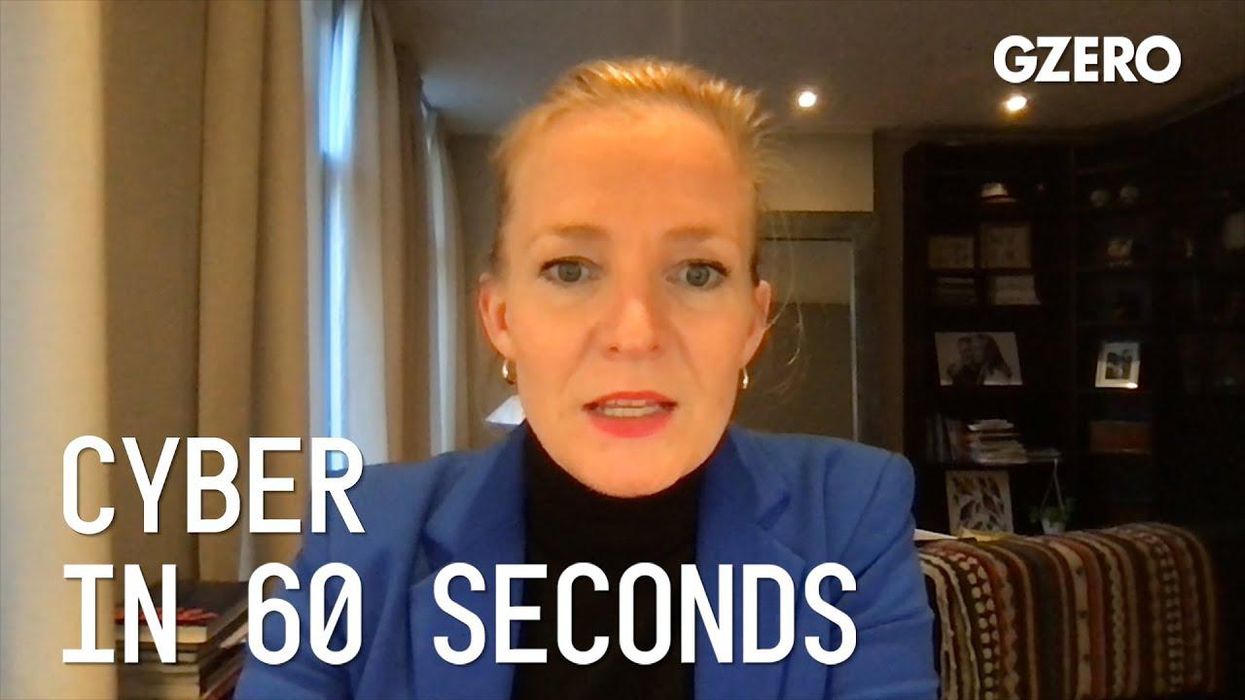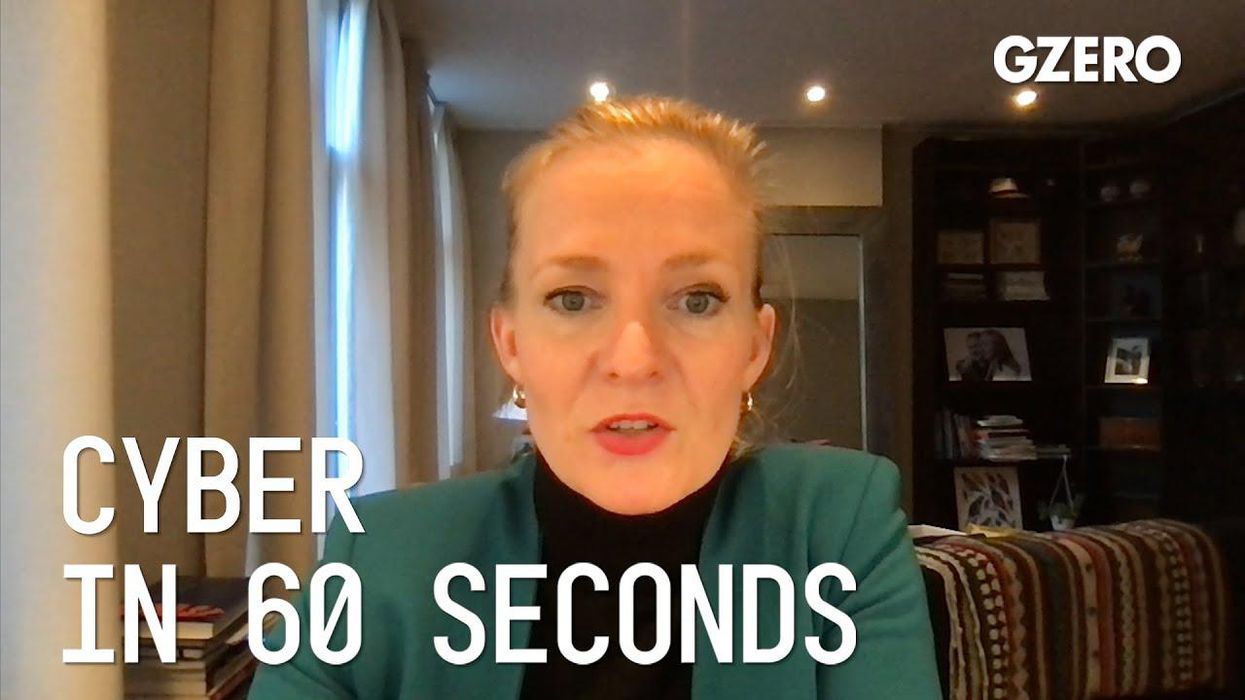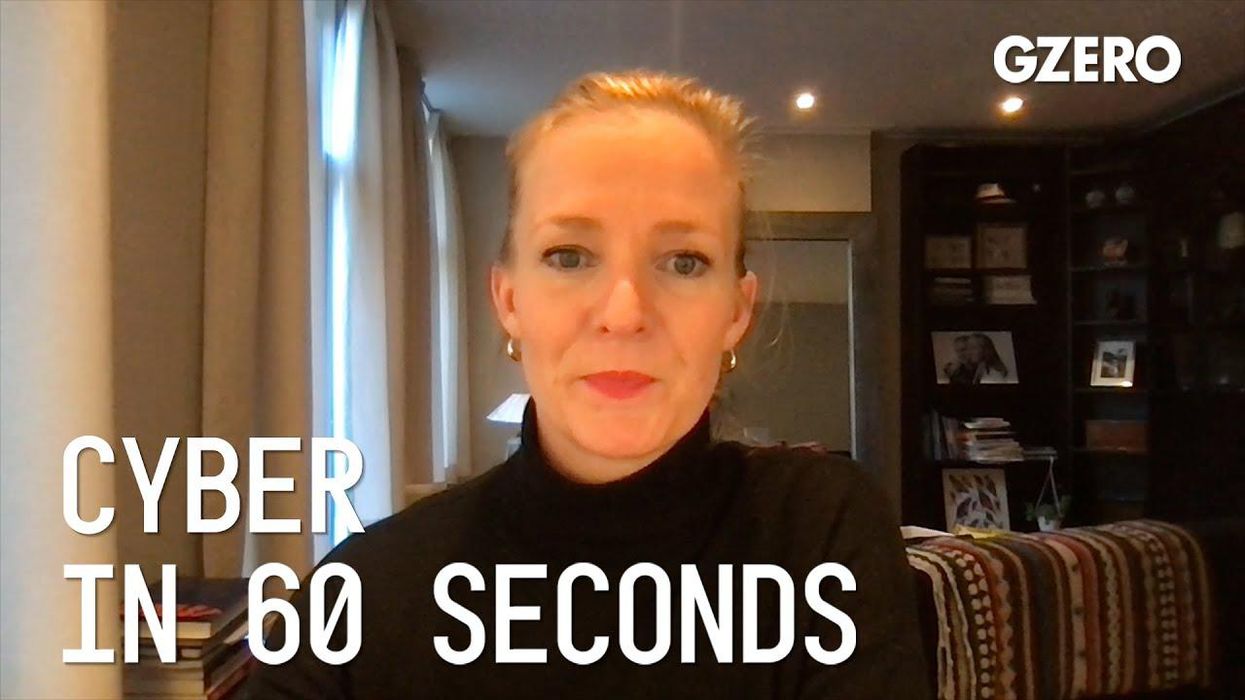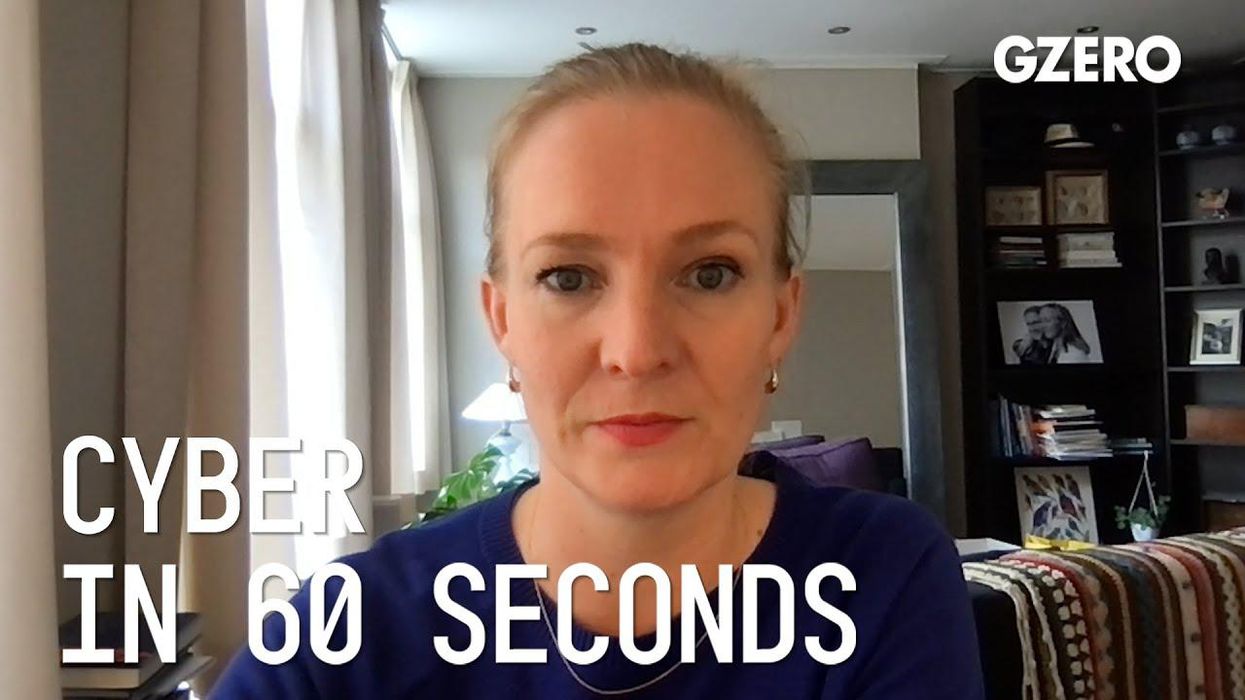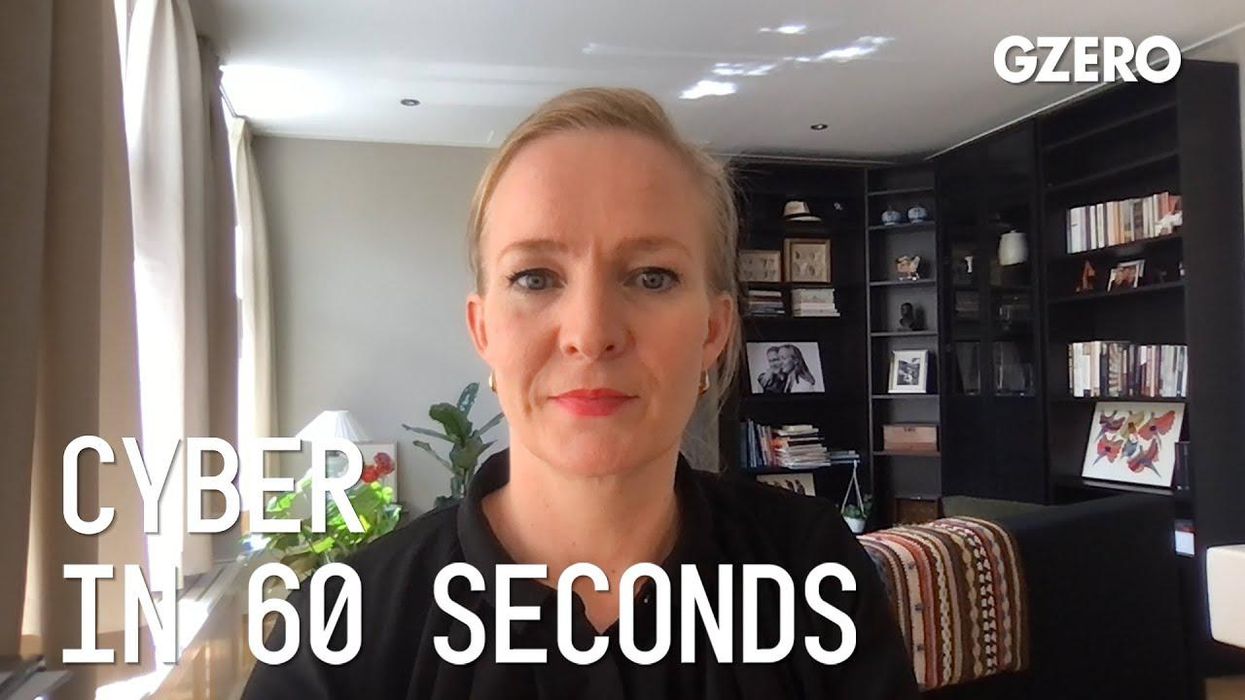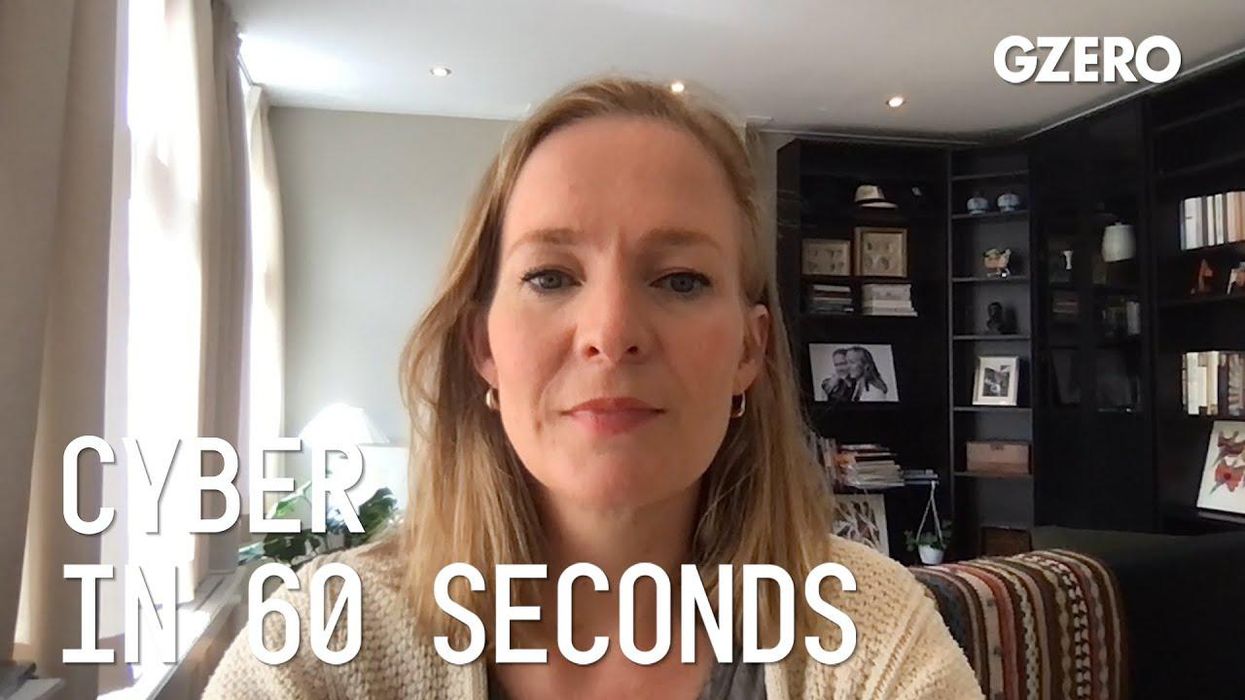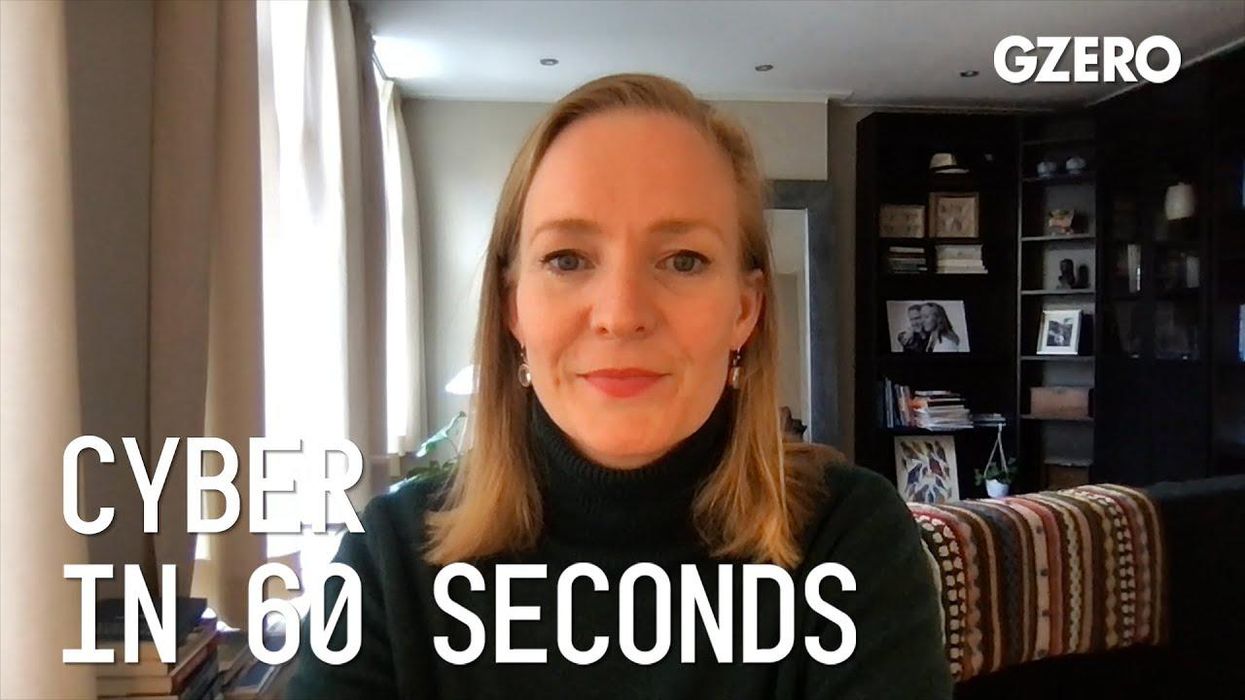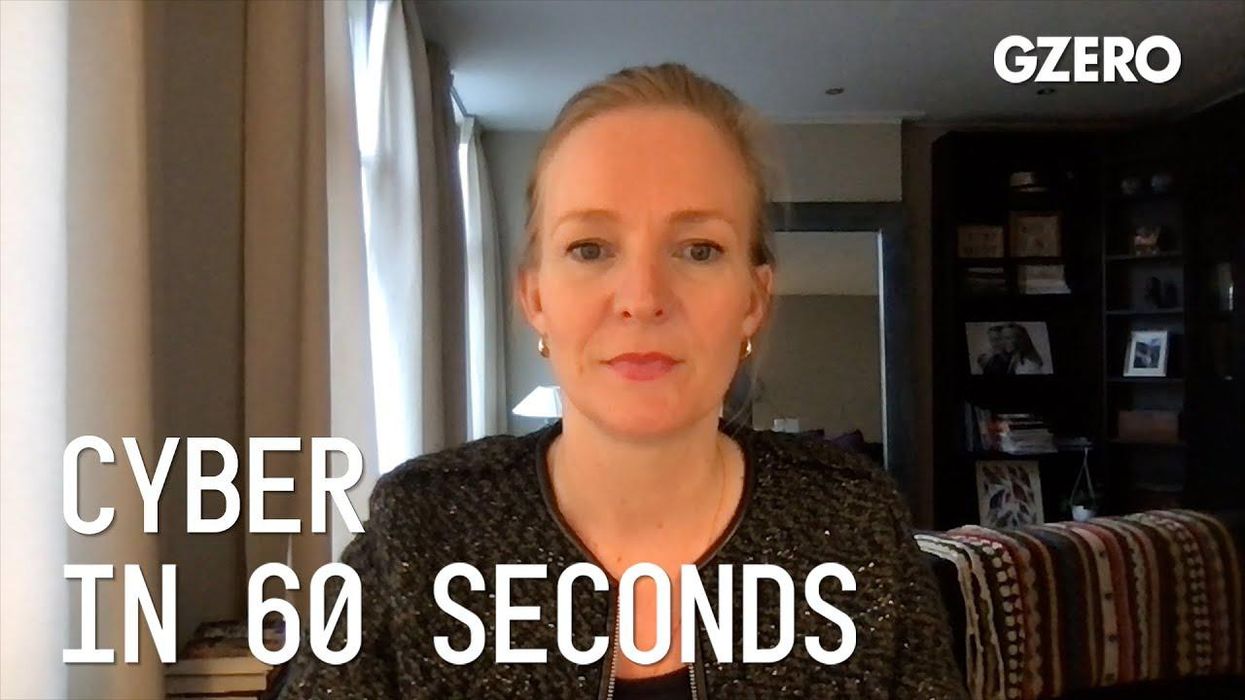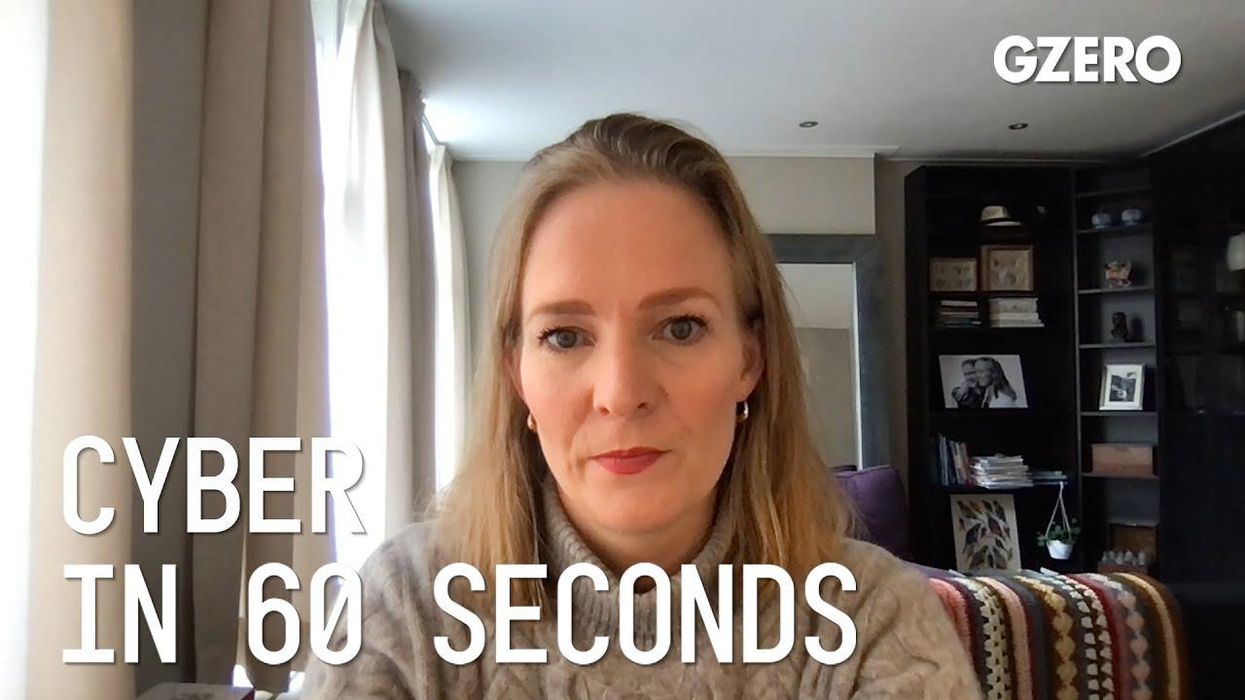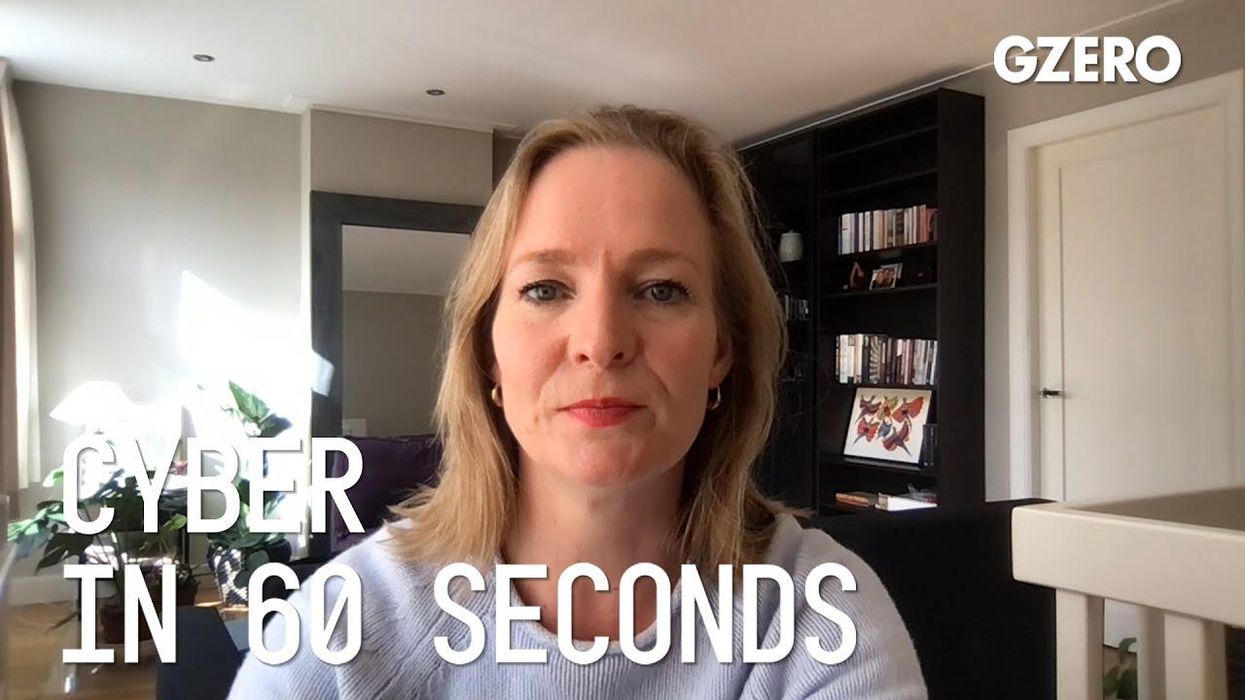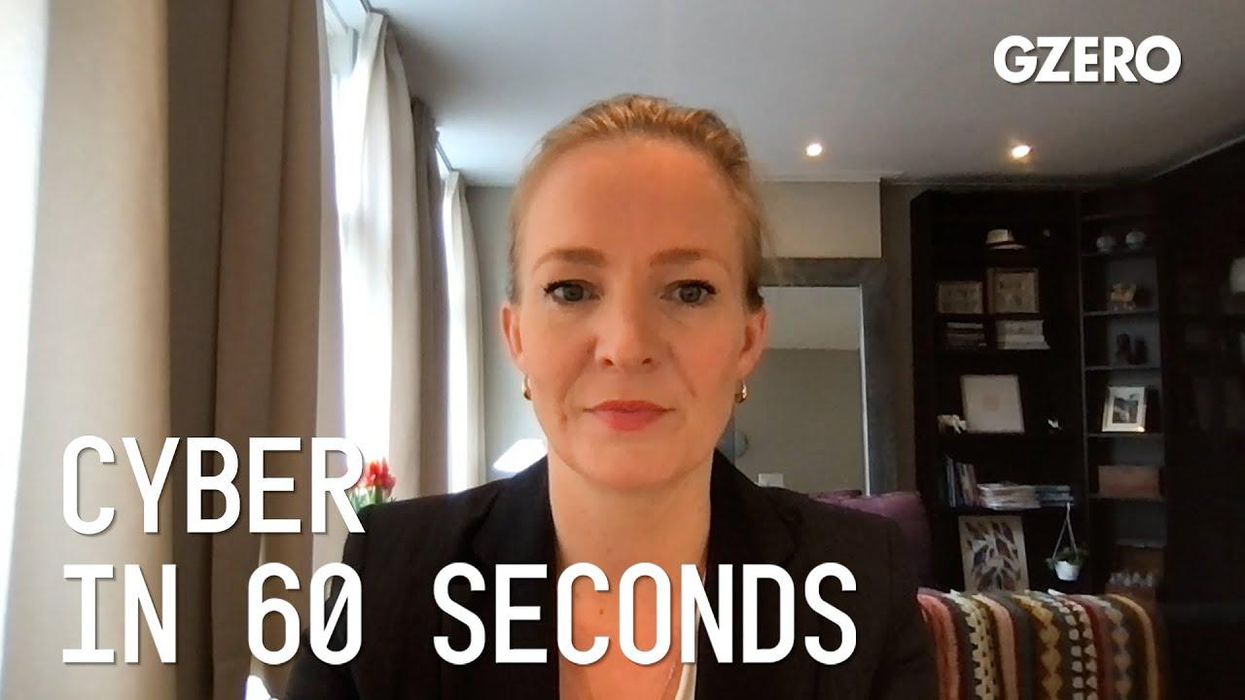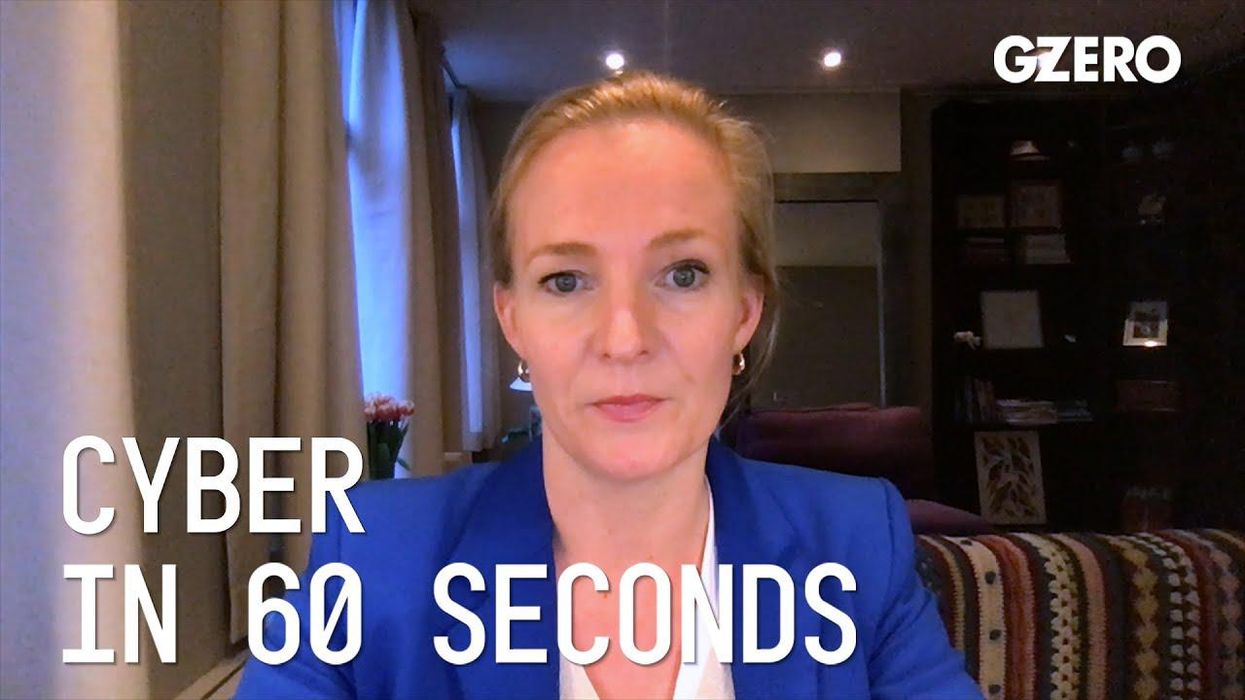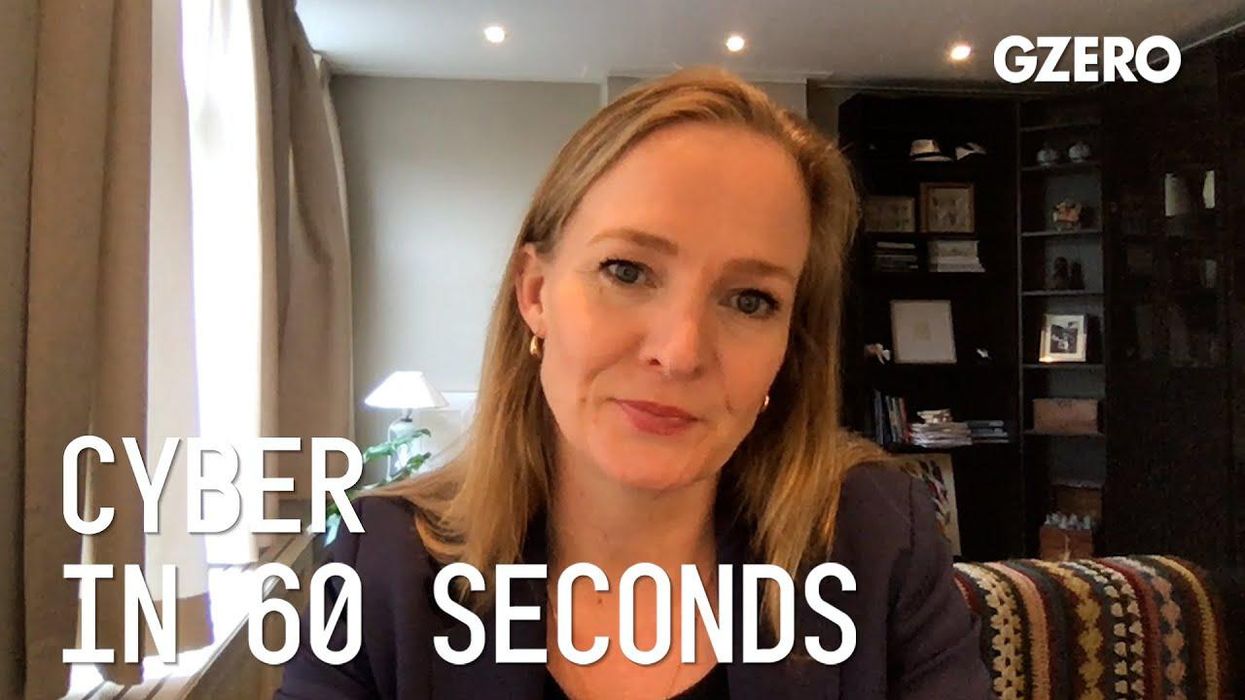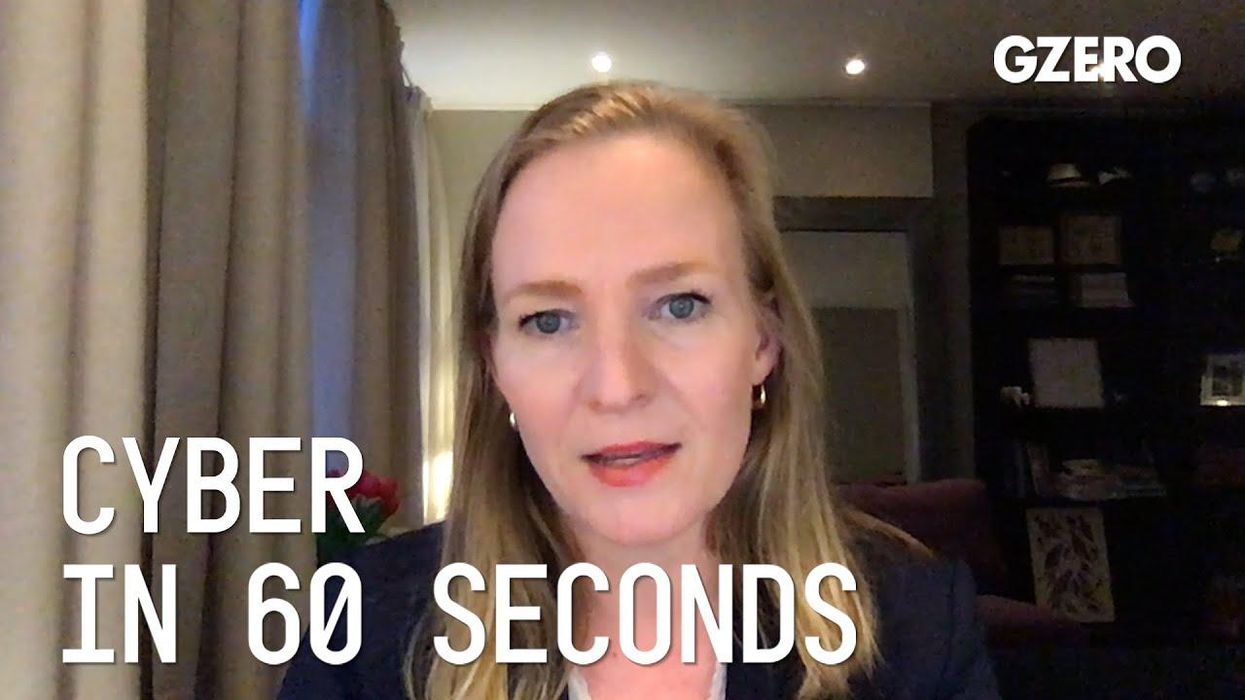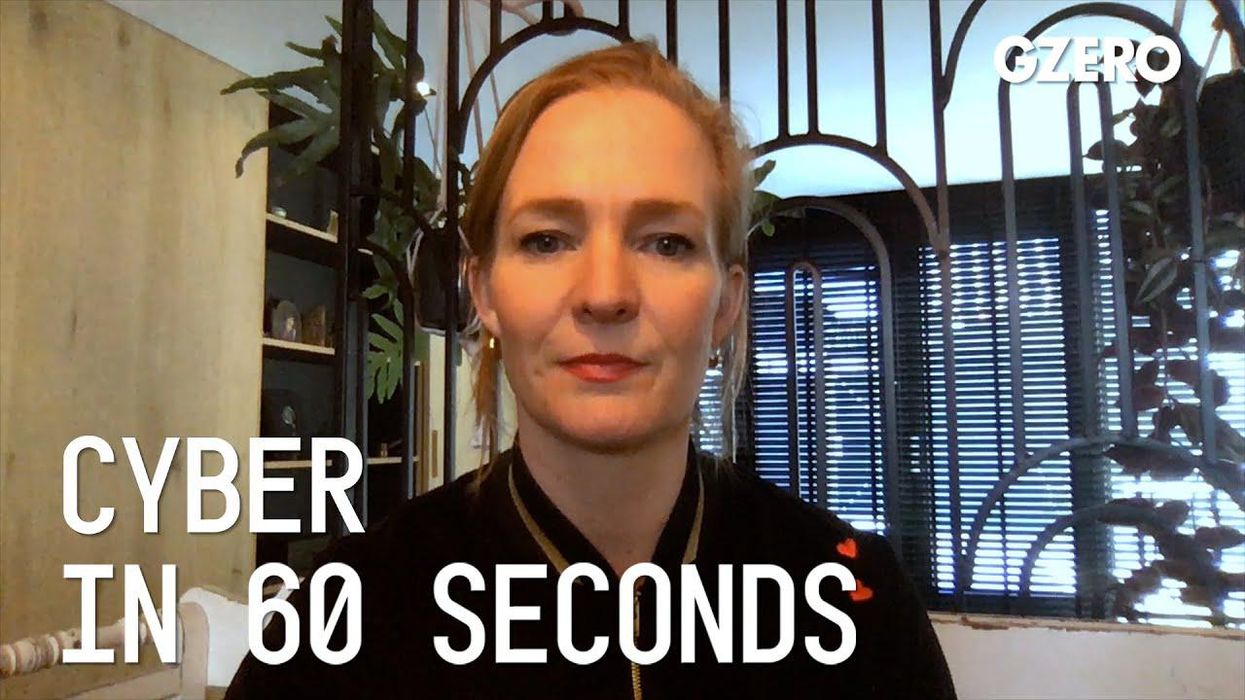VIDEOSGZERO World with Ian BremmerQuick TakePUPPET REGIMEIan ExplainsGZERO ReportsAsk IanGlobal Stage
Site Navigation
Search
Human content,
AI powered search.
Latest Stories
Start your day right!
Get latest updates and insights delivered to your inbox.
Cyber in 60 Seconds
Presented by
Marietje Schaake, International Policy Director at Stanford's Cyber Policy Center, Eurasia Group senior advisor and former MEP, discusses the Ukraine conflict from the cybersecurity perspective:
If you're like me, you've been glued to the news all week after Russia invaded Ukraine to understand what is happening on the ground and how the democratic community is responding. We've seen tectonic changes already in this past week, and we could say the same for Big Tech.
How is the Russia-Ukraine war testing the role of Big Tech?
Well, I do think we see their outsized power revealed once more. We saw Putin restricting access to platforms like Facebook, as he is losing grip over his propaganda narrative. But then also social media companies finally being forced to stop amplifying state propaganda channels of Russian media in the EU, due to new sanctions. But the fact that the platforms are not doing the same in the US and other jurisdictions says a lot about their reluctance. And there's also a problem with executing their own corporate policies. New research shows that Facebook fails in 91% of cases to correctly label content when it is Russian state sponsored. It's very messy.
What is social media's role in the Russia-Ukraine war?
Well, we've seen a lot of clips, and I've been quite impressed with how the Ukrainian side has seemed to be one step ahead each time. President Zelensky was addressing the world in response to rumors that he had actually fled the country, to show that none of that was true. And there are also clips of how captured Russian soldiers, often looking like teenagers, are fed while calling their mothers crying, and it paints a picture of how young boys are sent into the battlefield without a clue of what they were sent to do.
But having said all this, it's only been a week of this unjust war and a lot will still have to be researched more deeply. So we will keep you posted.
Keep reading...Show less
More from Cyber in 60 Seconds
Watching Russia: cyber threats & disinformation
March 18, 2022
Cyber warfare & disinformation play key role in Russia Ukraine conflict
February 24, 2022
Constant Russian attacks on Ukraine in cyberspace
February 17, 2022
NFTs: Hype, mainstream growth - & implications
February 10, 2022
US pushes back on EU's proposed laws impacting US tech companies
February 04, 2022
Europe and the US can’t agree on how to regulate Big Tech
January 28, 2022
Tech companies' role in the spread of COVID-19 misinformation
January 12, 2022
How tech was used to harm democracy on January 6
January 07, 2022
Can political leadership prevent cyberattacks in 2022?
December 30, 2021
Biggest cybersecurity threat to watch in 2022
December 23, 2021
Spyware concerns prompt US Congress to move toward sanctions
December 17, 2021
Biden's Summit for Democracy gets slow start on tech concerns
December 10, 2021
EU's proposed DSA and DMA laws would broadly regulate digital economy
December 03, 2021
Facebook metaverse launch leads other Big Tech firms to focus on AR/VR
November 24, 2021
Amazon satellites and Project Kuiper: next steps in Big Tech space race
November 05, 2021
Russian hackers target US tech companies with little accountability
October 28, 2021
Do cryptocurrencies undermine US sanctions?
October 22, 2021
How will the global corporate tax deal impact tech companies?
October 13, 2021
Facebook's terrible week proves tech policy changes are needed
October 08, 2021
The US and EU further talks on technology governance
October 01, 2021
QUAD supply chain strategy to consider values; new AI-powered weapons
September 22, 2021
Beware perpetual cyberattacks, and protect education data
September 14, 2021
El Salvador’s risky move to Bitcoin; future of Singapore patrol robots
September 10, 2021
Can China limit kids’ video game time? Risks with facial recognition
September 01, 2021
QR codes and the risk to your personal data
July 28, 2021
Cloud computing and US cybersecurity
June 03, 2021
The dangers of deepfakes and the need for norms around trust
March 25, 2021
SolarWinds hack a wake-up call to the tech sector
March 04, 2021
EU & US: democracy frames tech approaches; Australia & Facebook flipflop
February 24, 2021
GZERO Series
GZERO Daily: our free newsletter about global politics
Keep up with what’s going on around the world - and why it matters.
